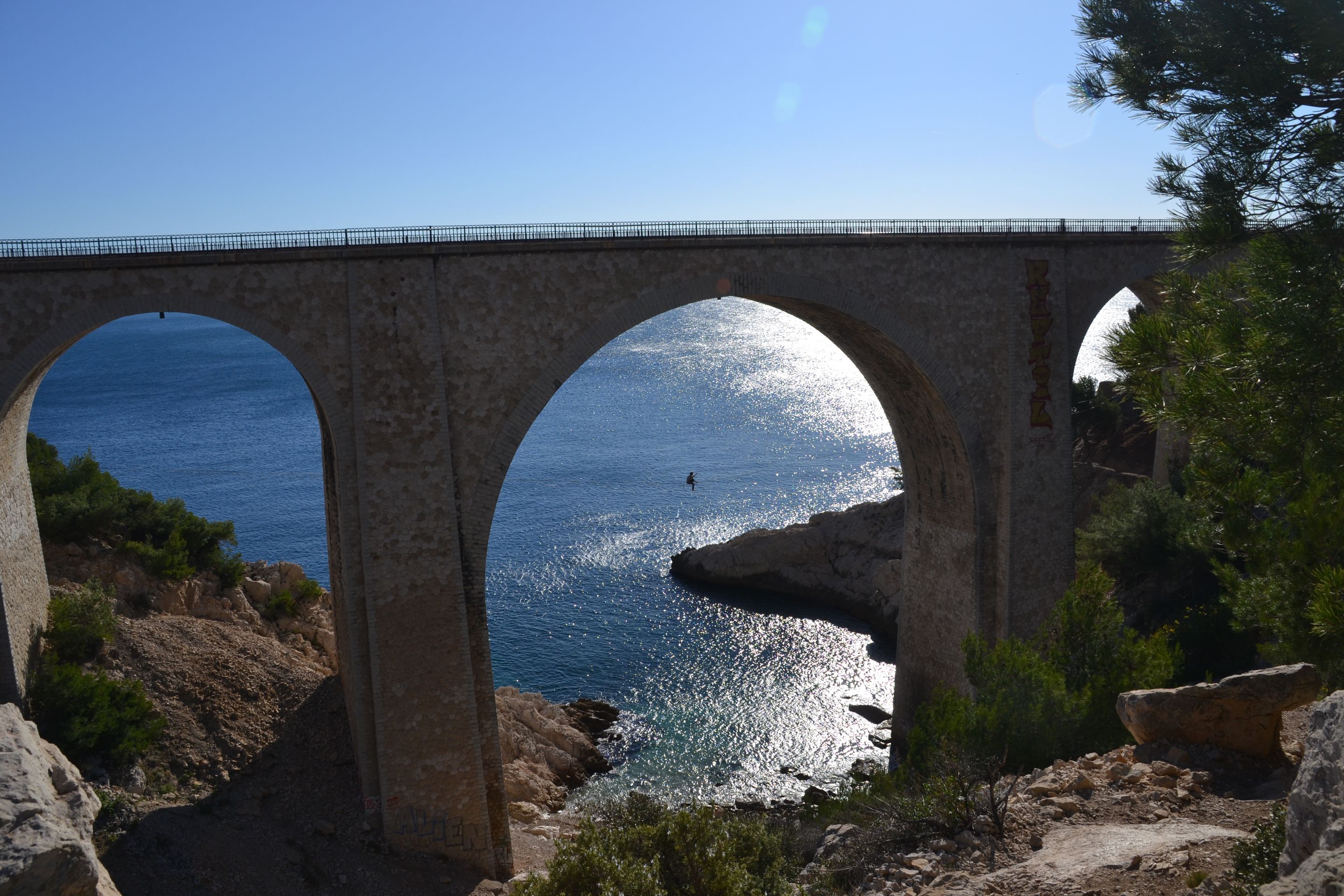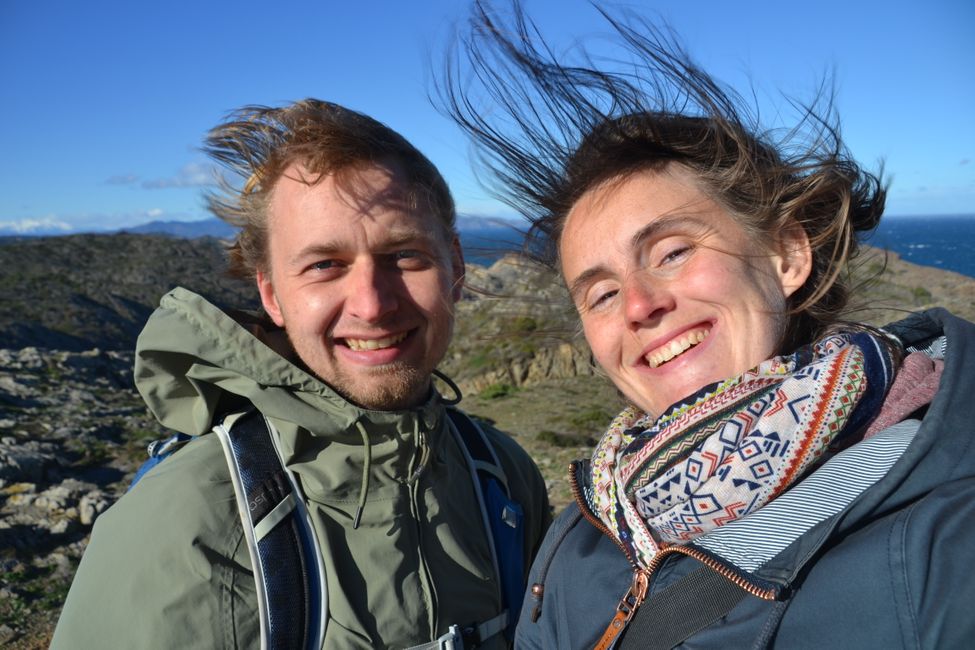#71 Sevilla - Eating Tapas in the Most Beautiful City in Spain
ຈັດພີມມາ: 19.02.2022
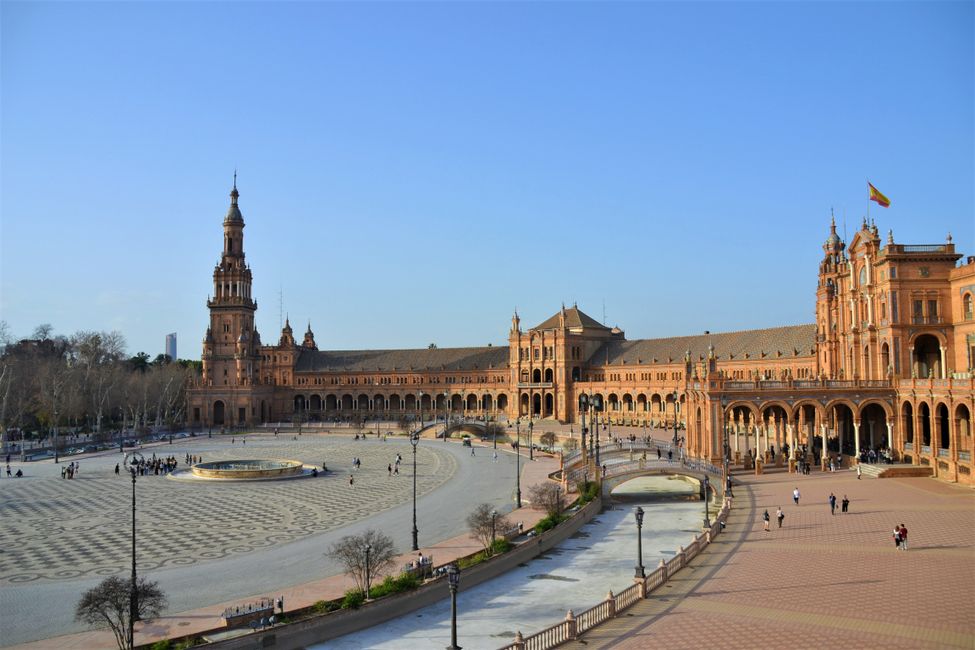
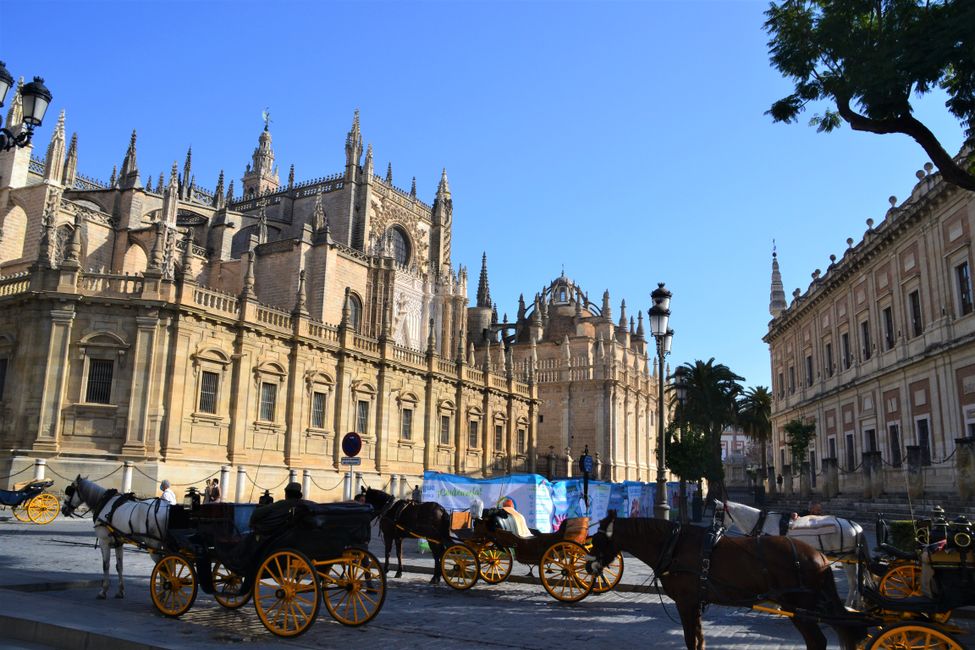
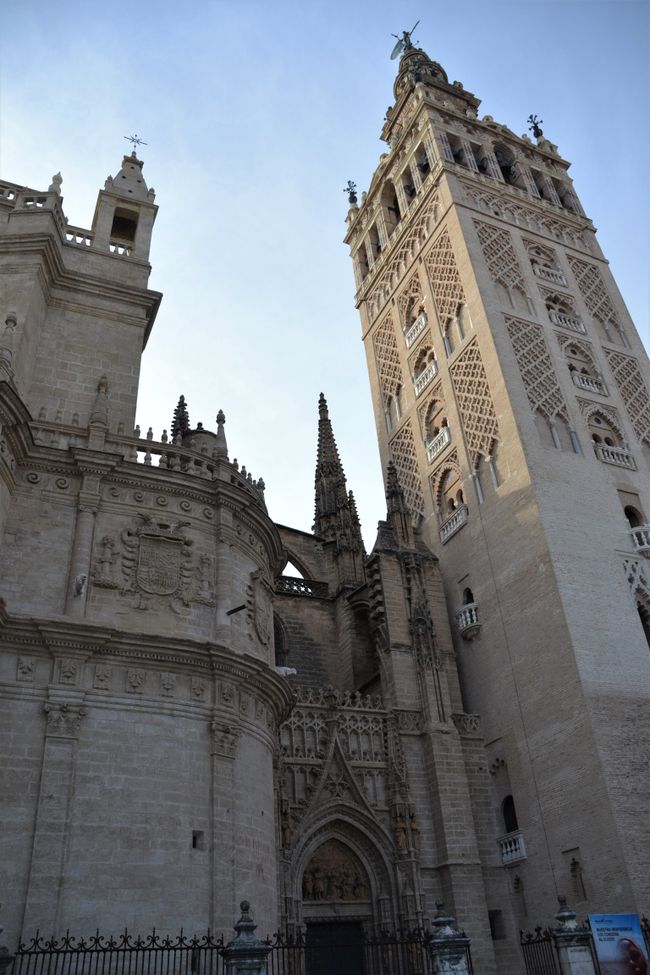
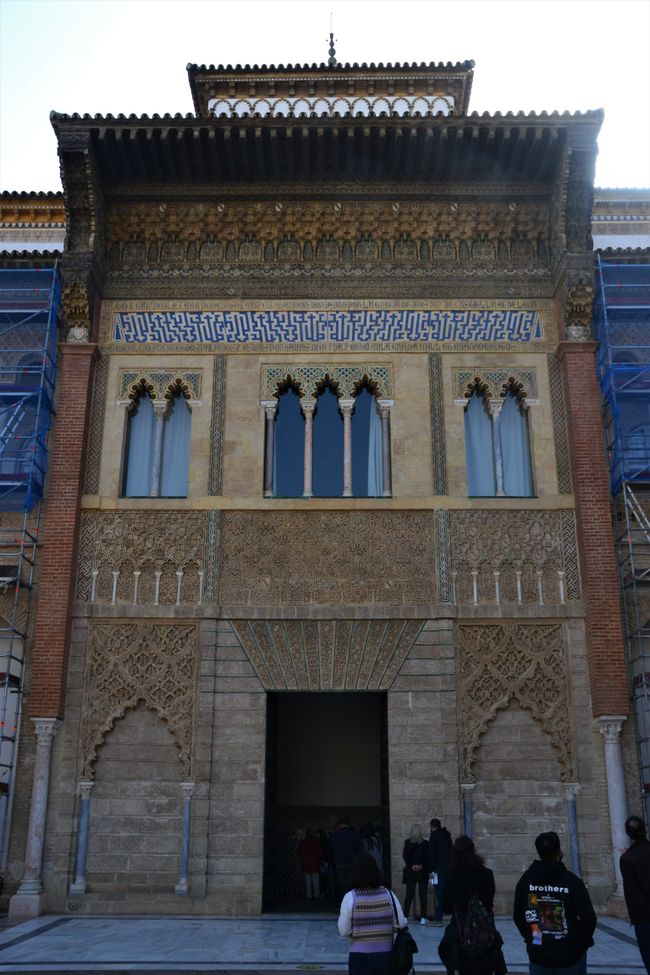
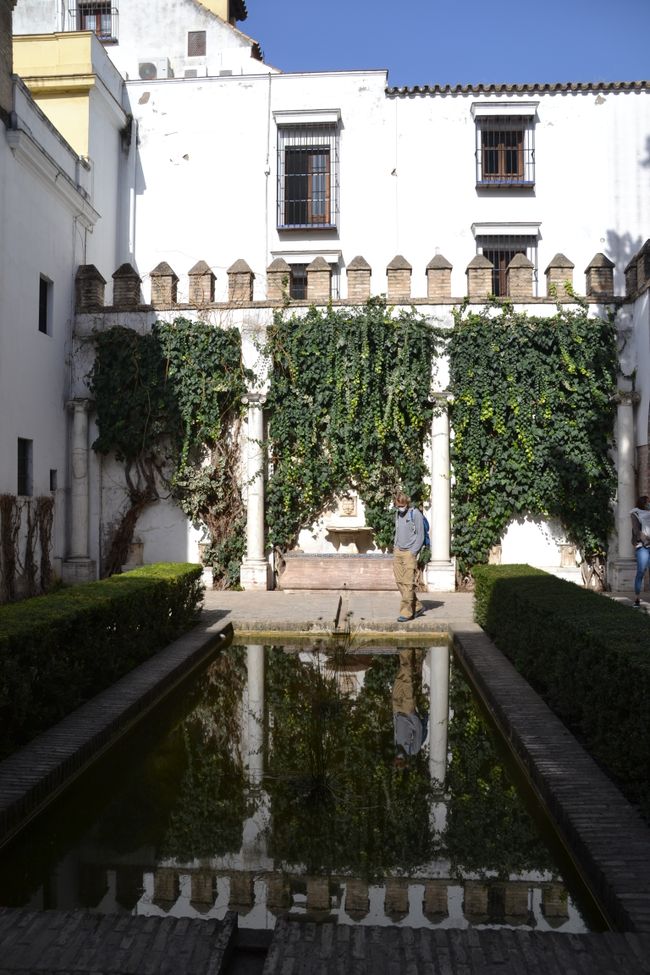
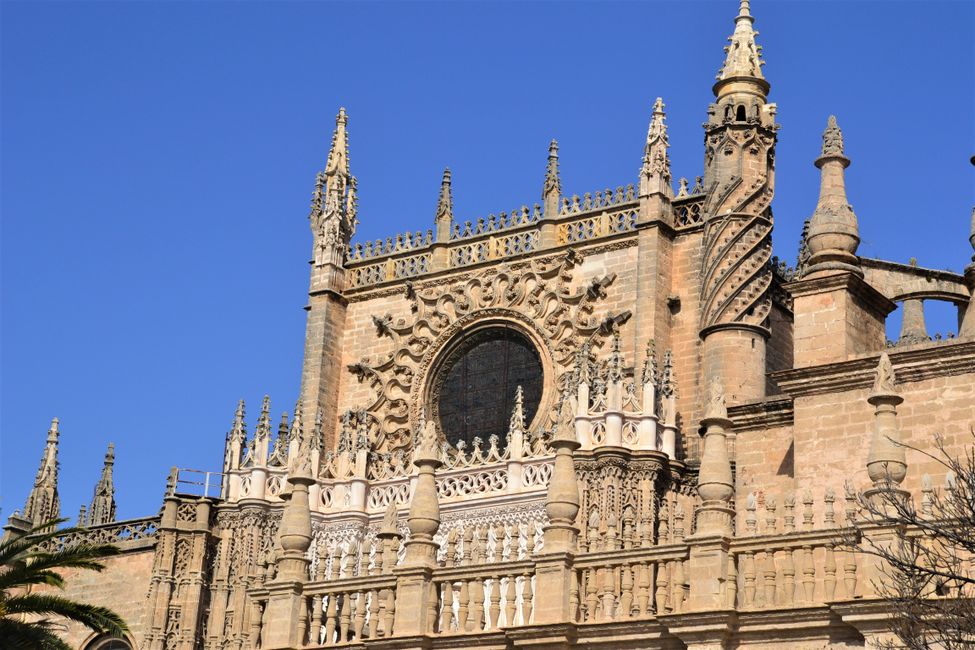
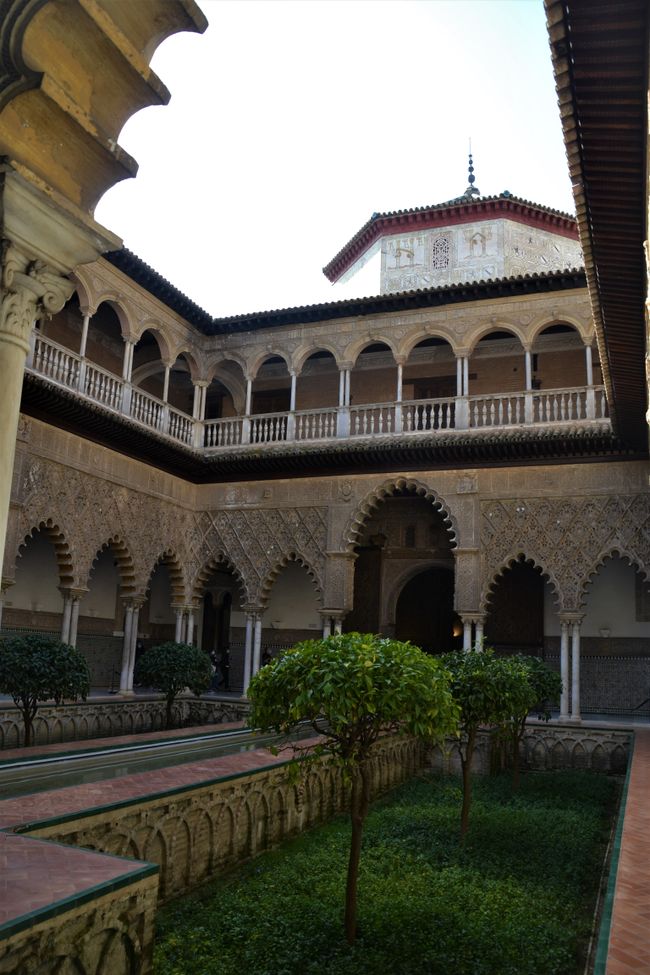
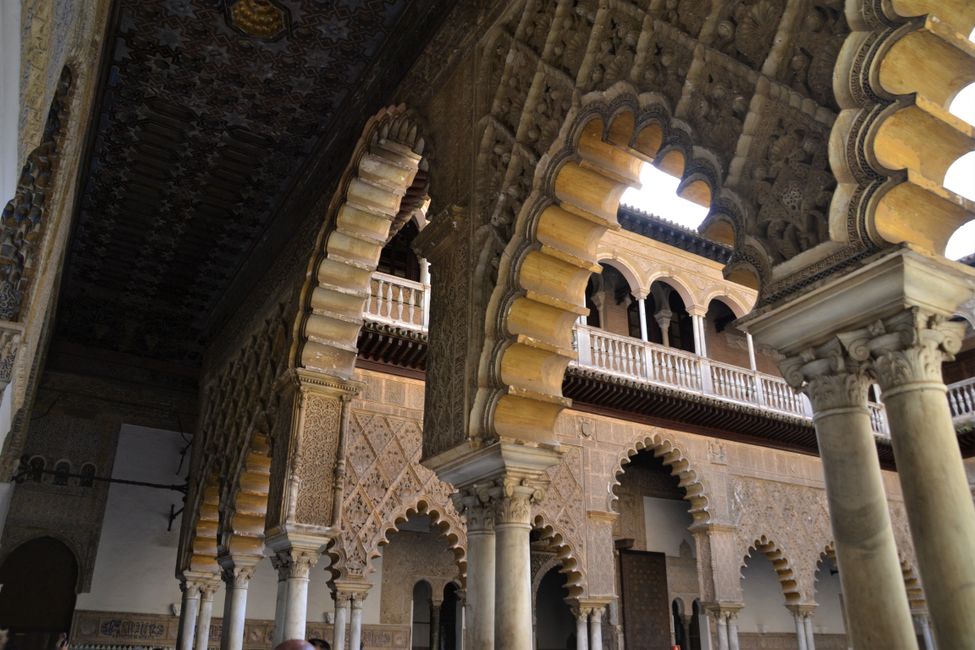
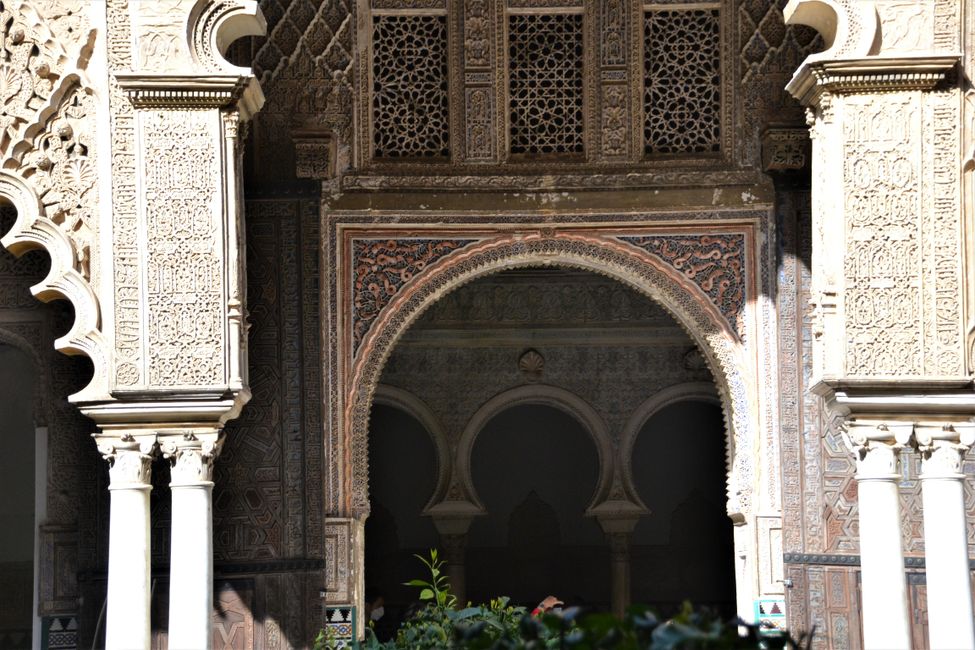
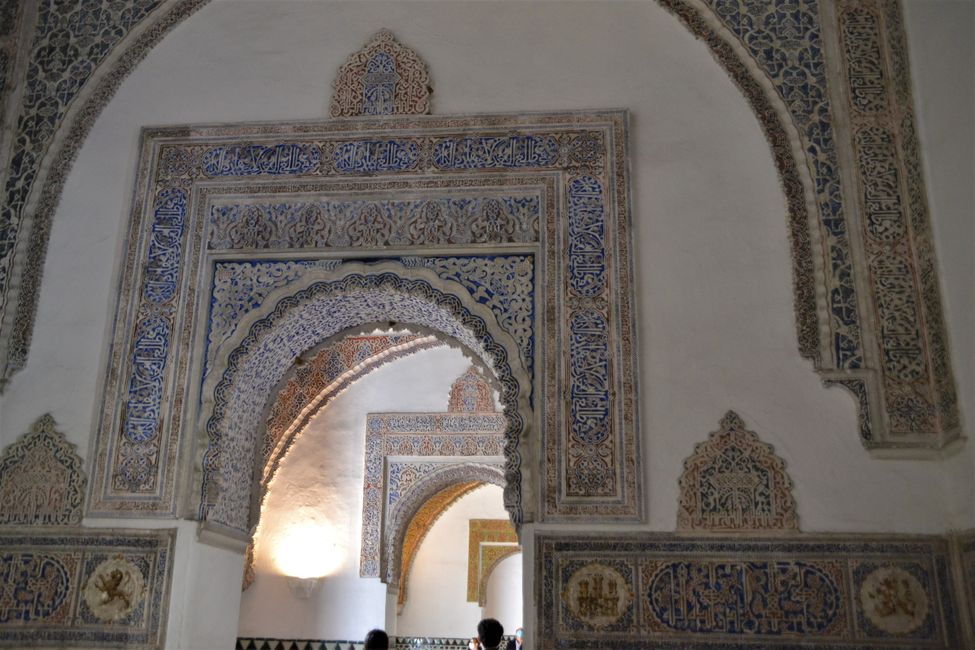
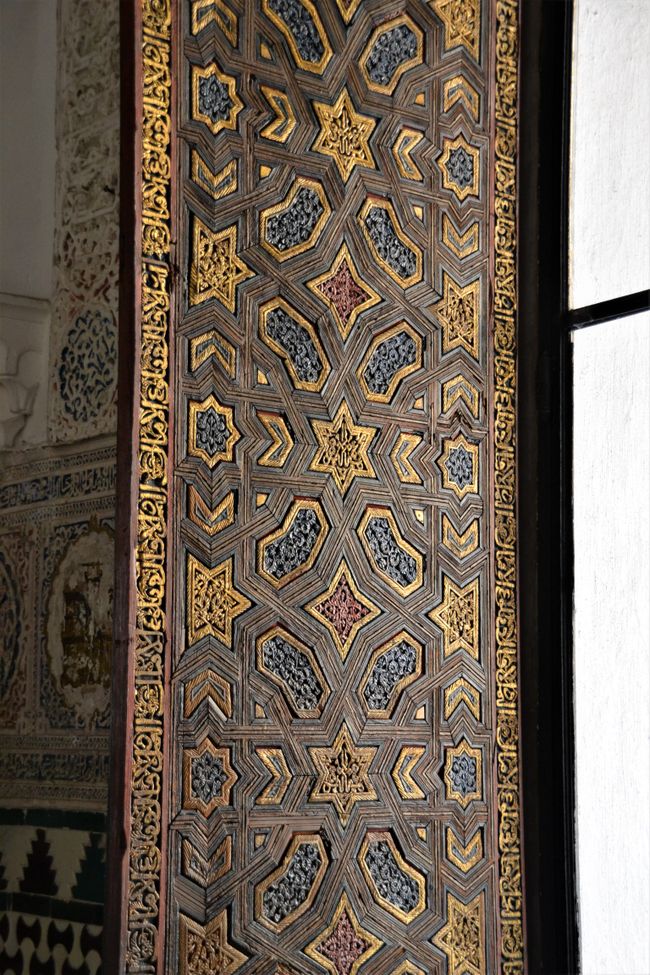
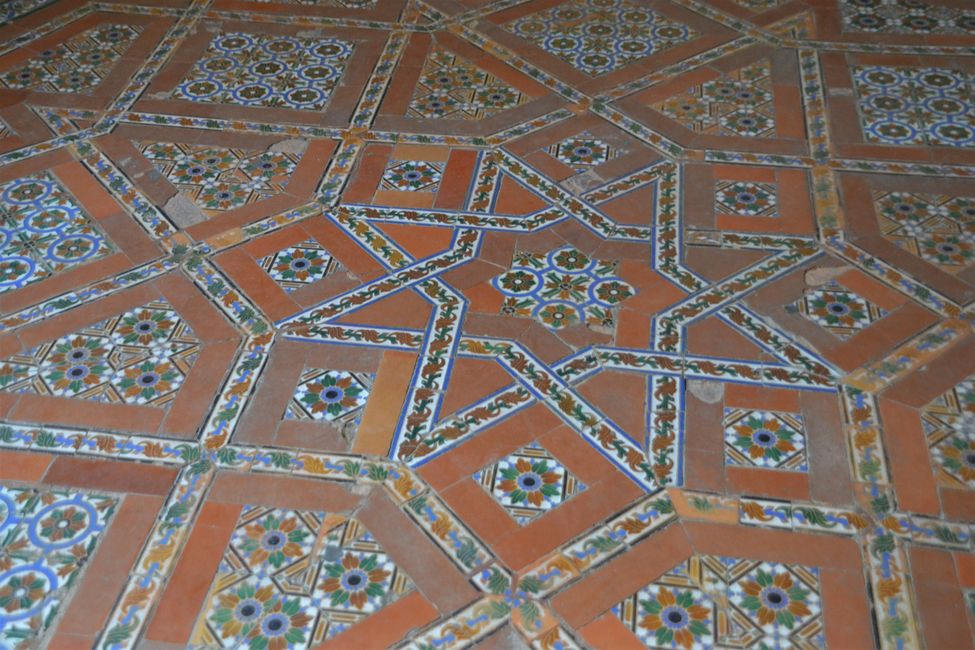
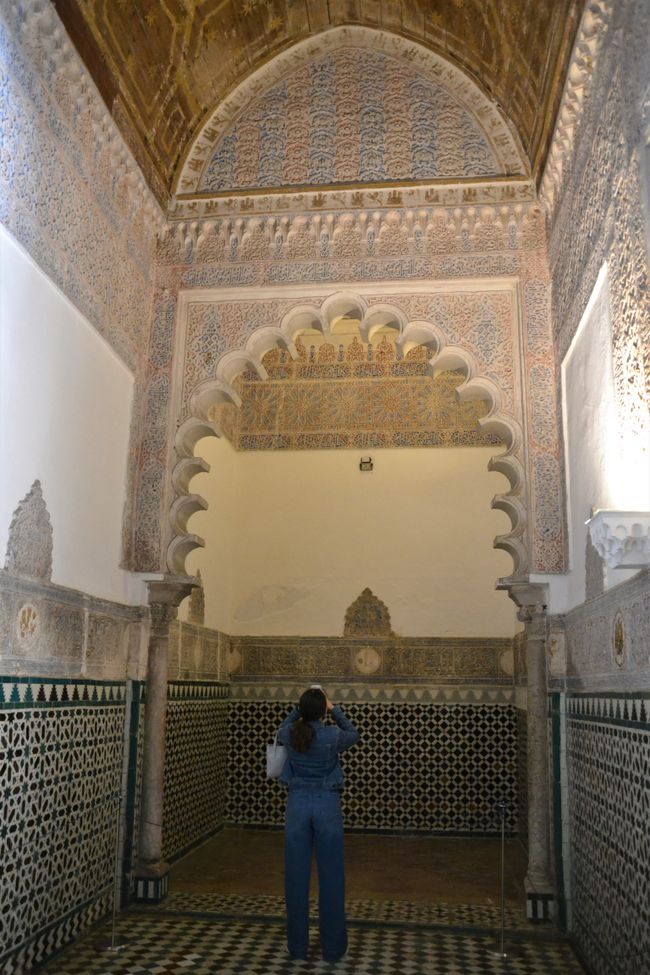
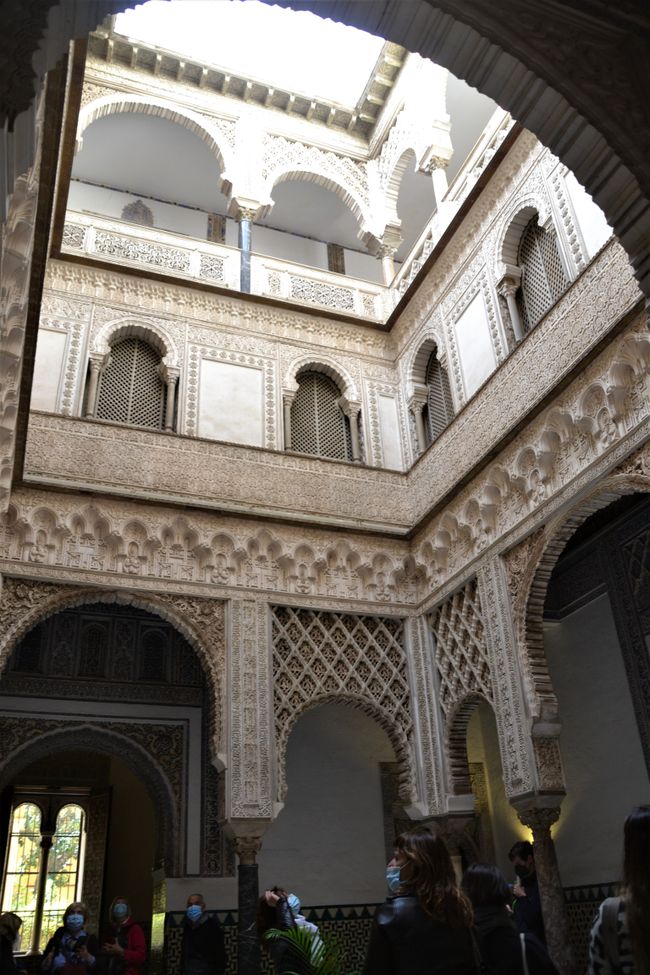
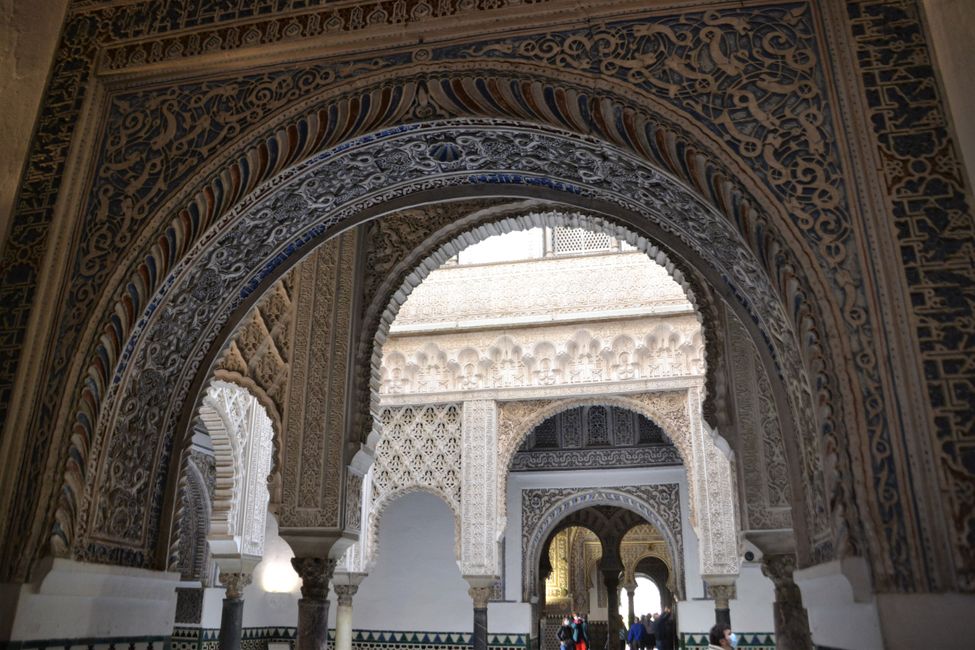
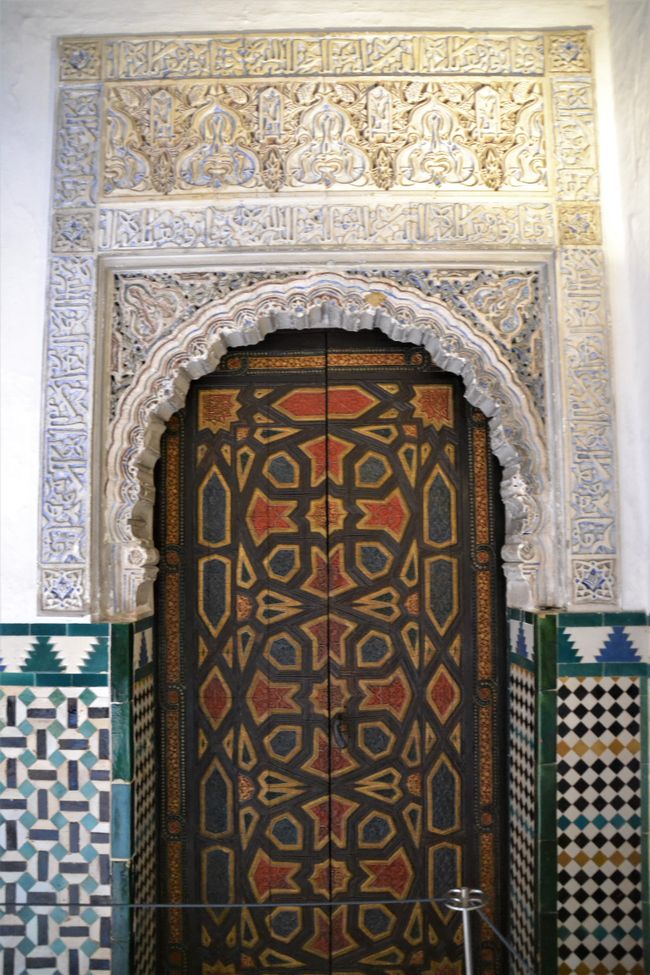
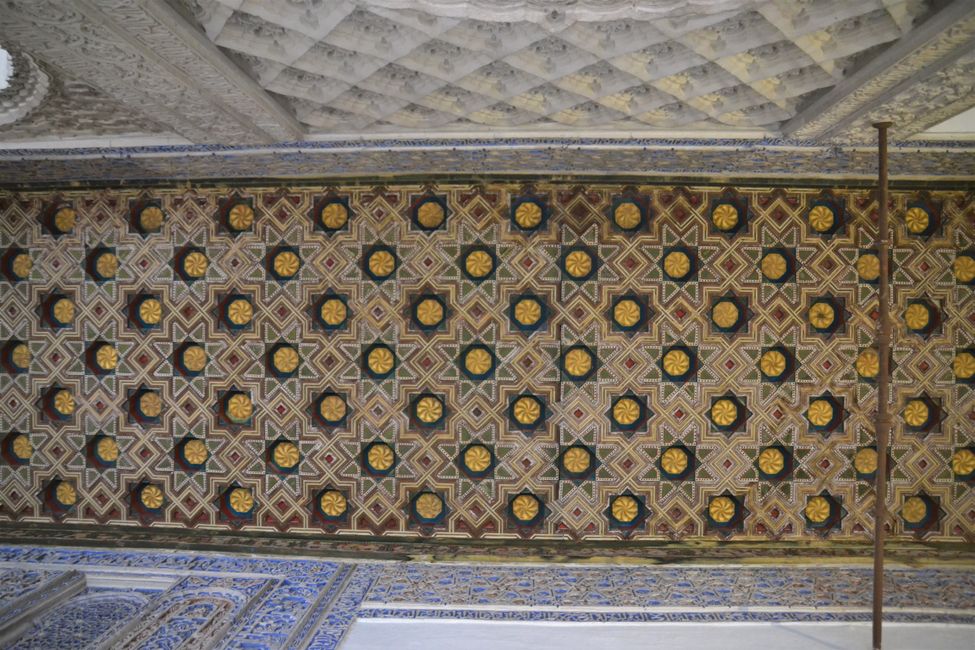
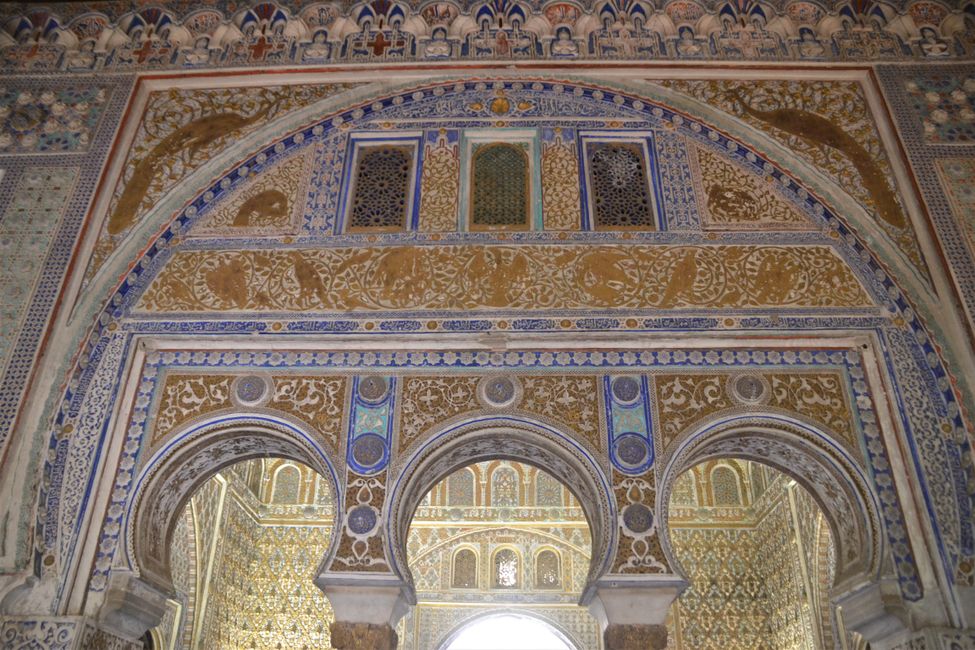
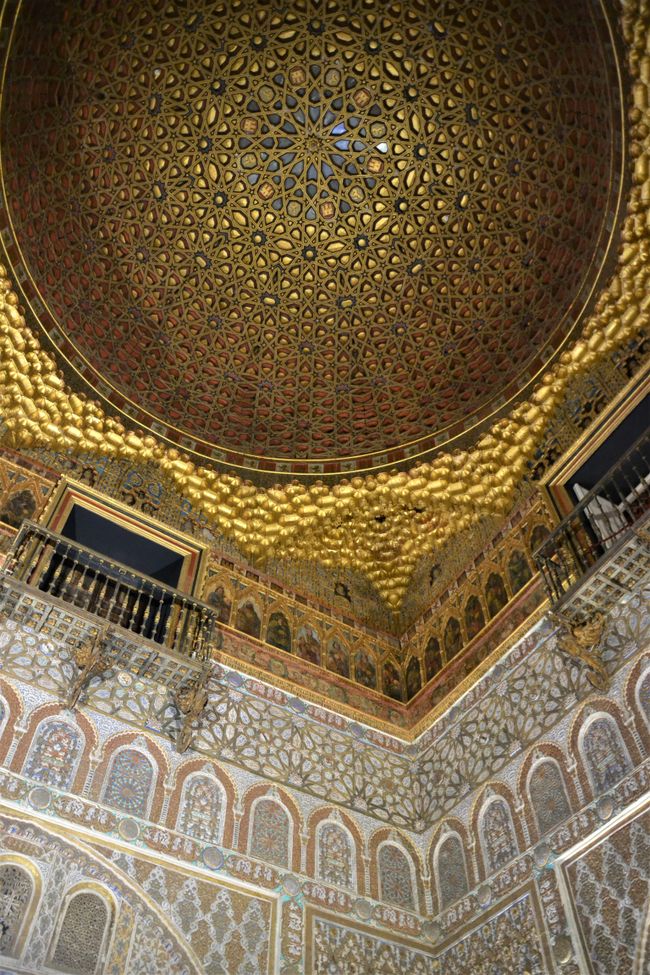
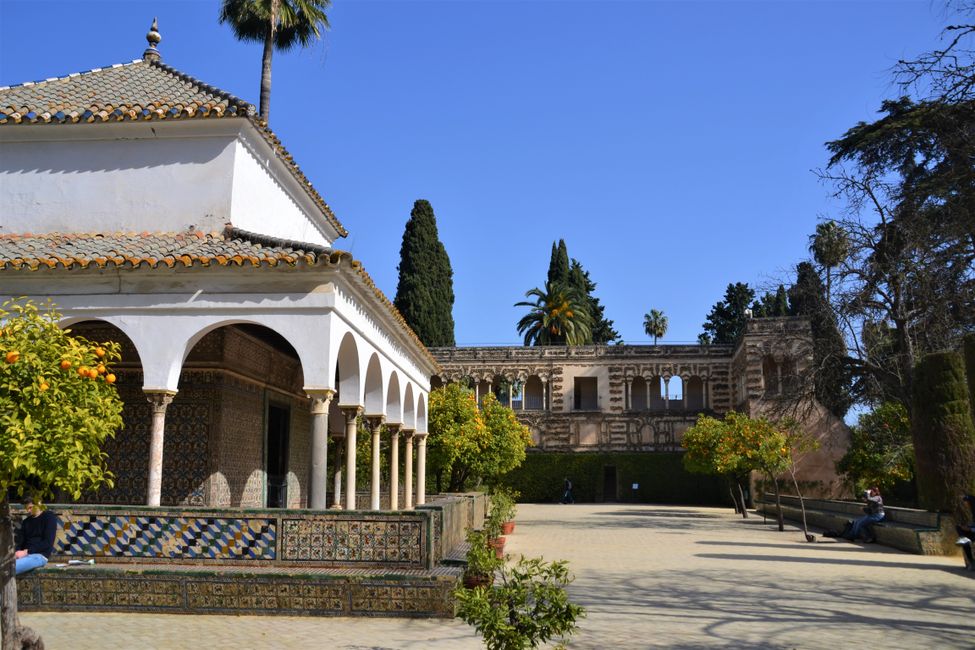
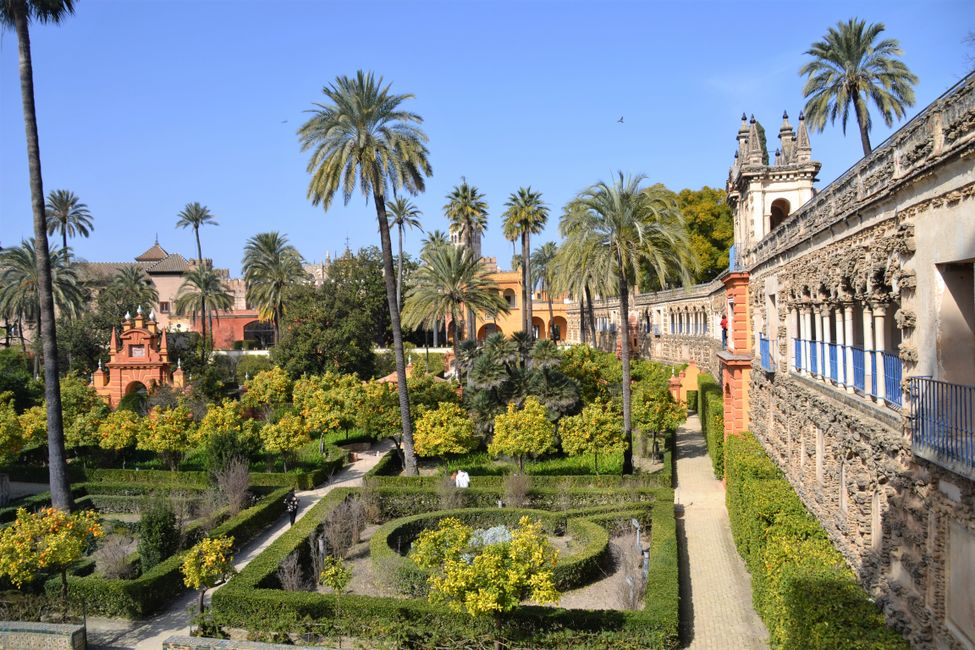
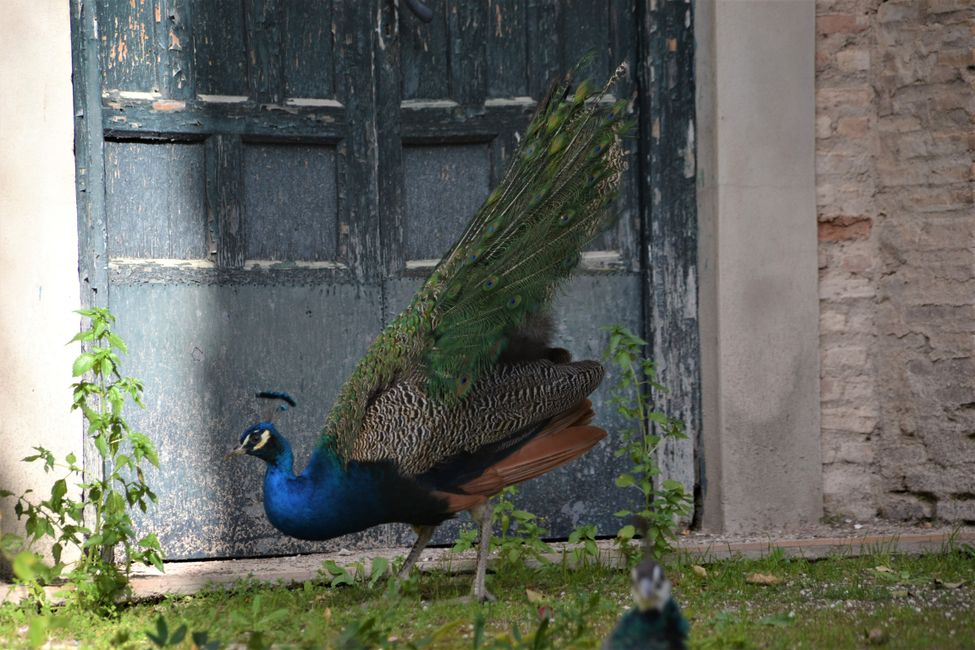
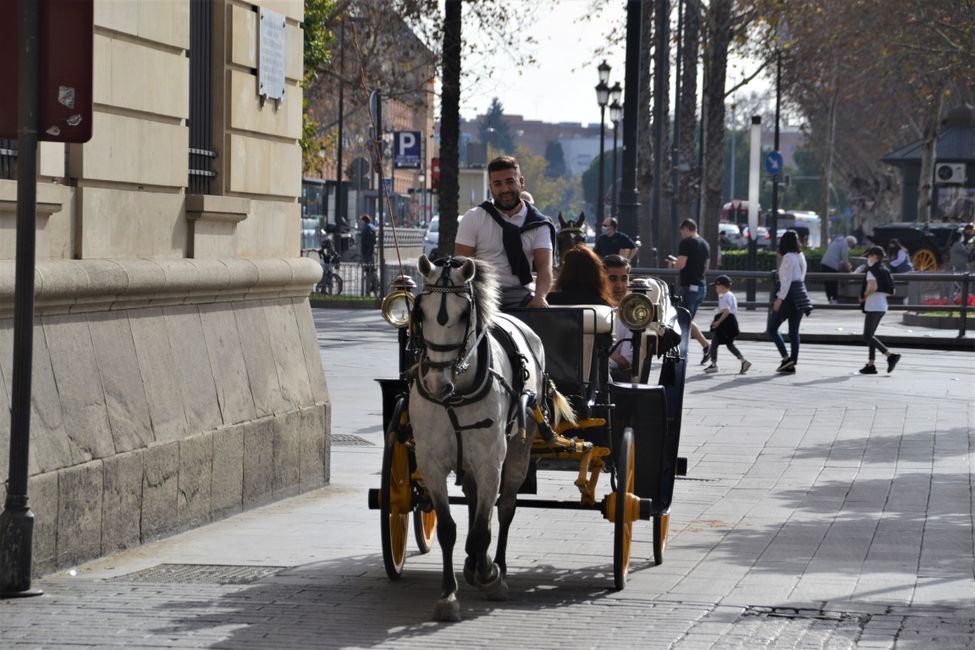
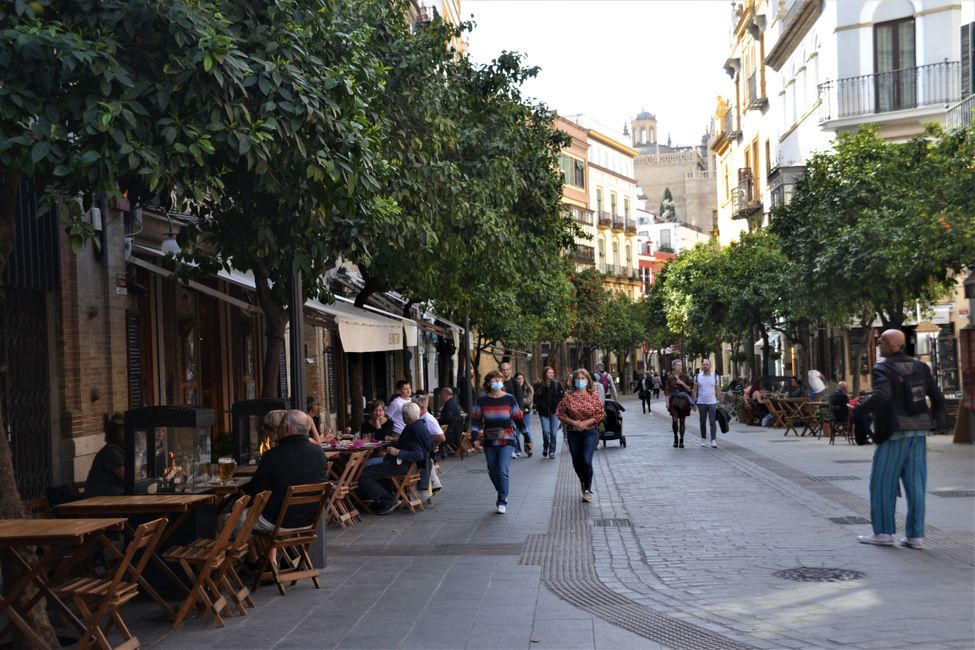
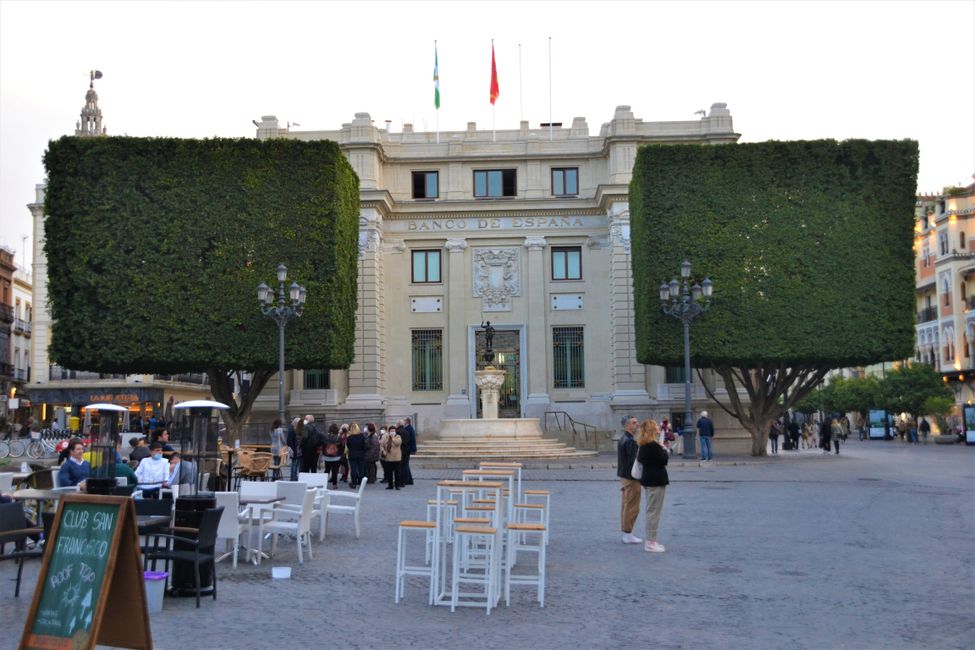
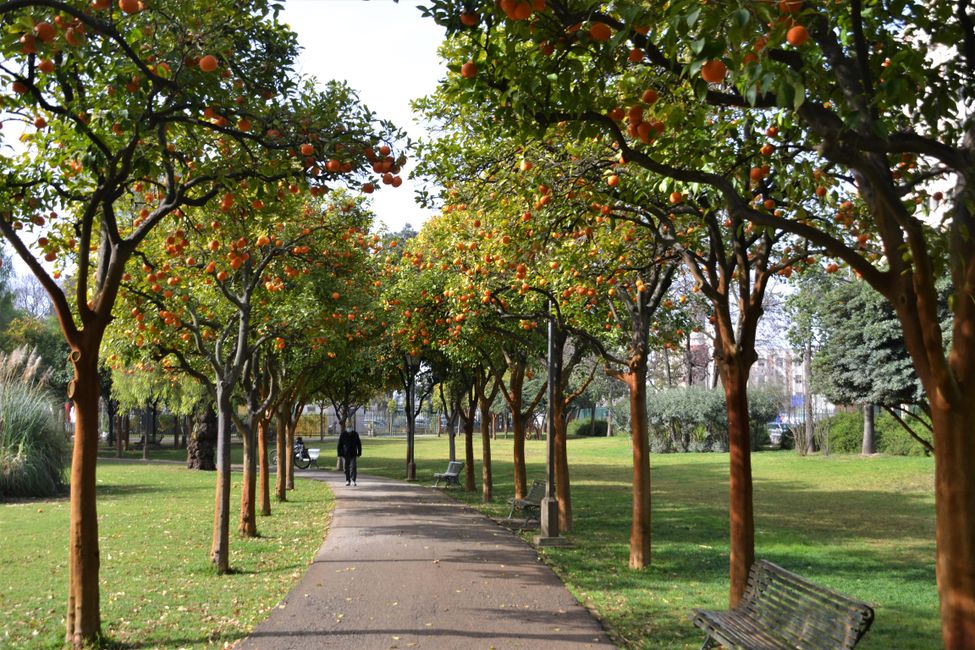
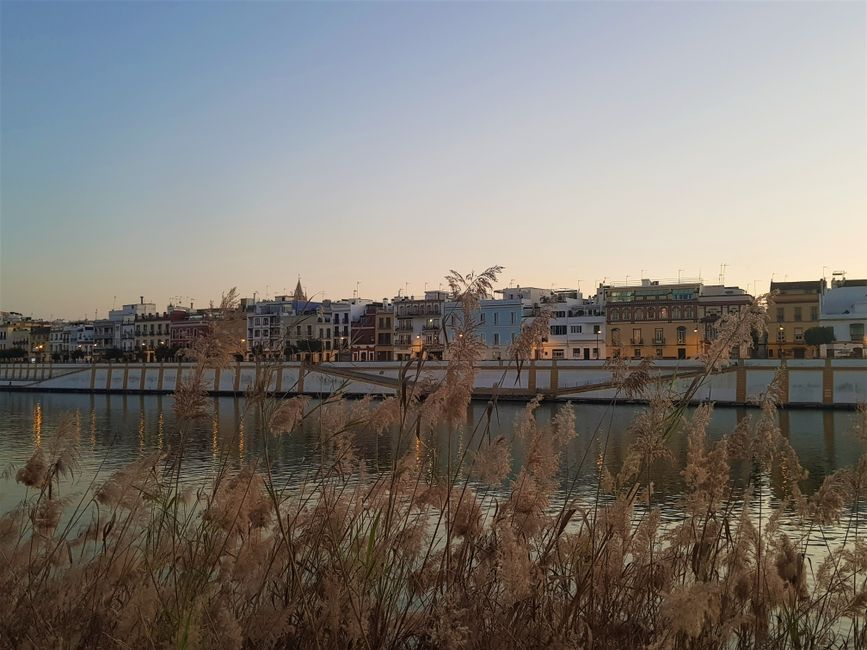
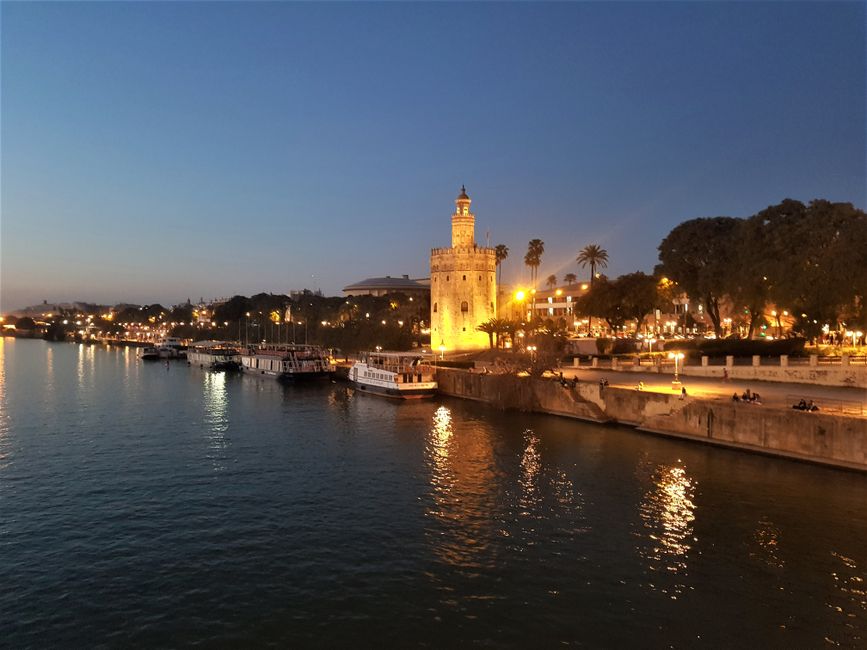
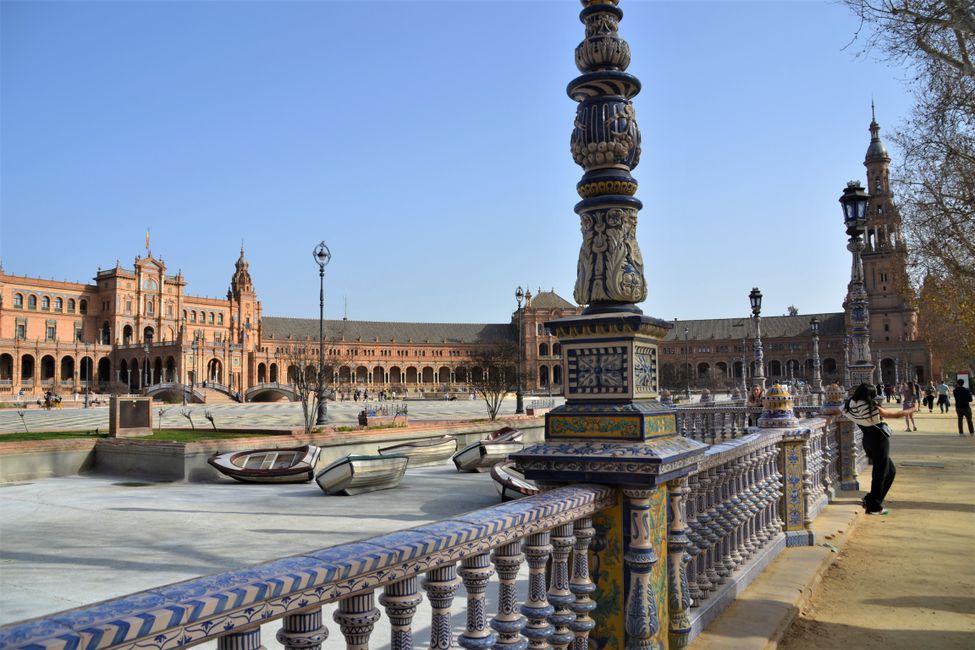
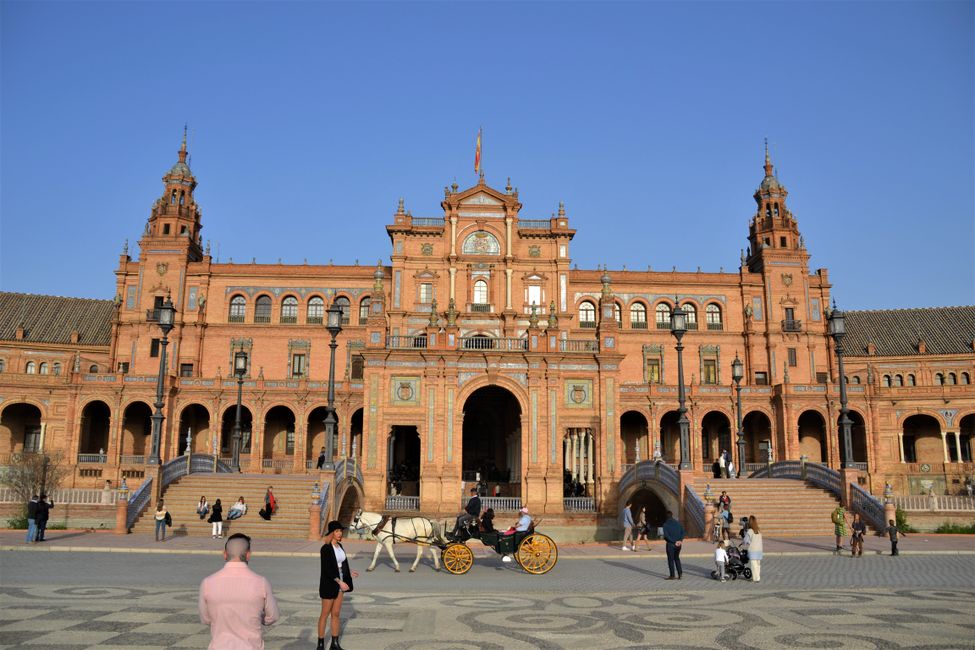
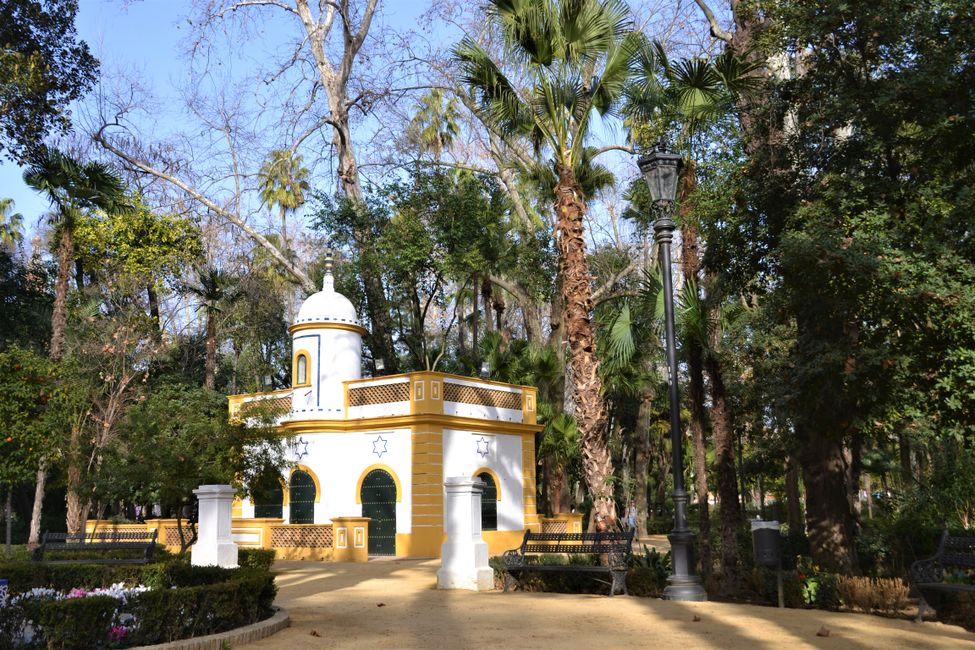
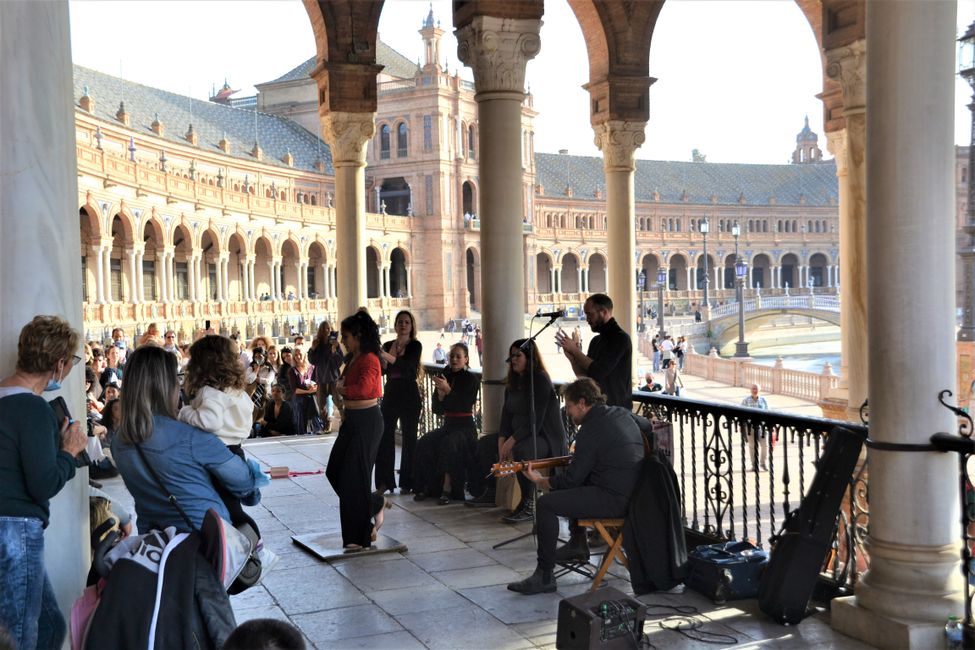
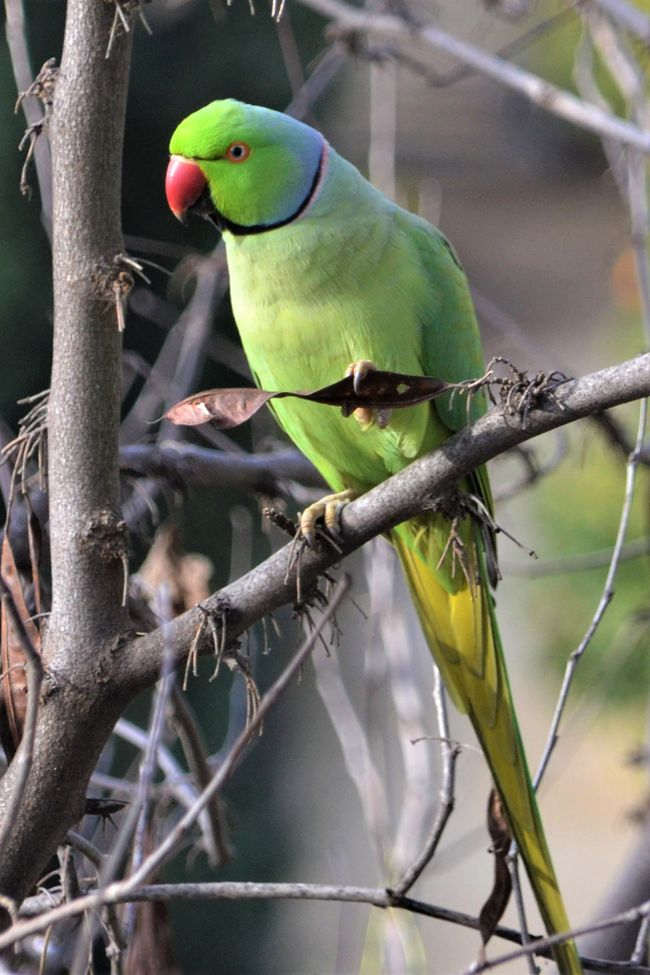
ຈອງຈົດຫມາຍຂ່າວ
February 9-11, 2022: Sevilla
Sevilla has become our favorite city in Spain. The atmosphere is laid-back and there is so much to see. As the description on our city map says: A city with a soul. Not enough eyes to see everything, not enough heart to admire everything.
During the three days we spent in Sevilla, we tried to see and admire as much as possible in perfect weather with sunshine and temperatures over 23 degrees Celsius, and absorb the flair of this city.
In Sevilla, there was not one major attraction that impressed us, it was the atmosphere of the city that blew us away. The city center is full of small, winding alleyways with tapas bars. There are large, sun-drenched squares and a wide river with waterfront promenades. (The river is actually a canal that the Muslims built when they ruled here so that the city is located by the water. It definitely makes a difference.) There are old, historic buildings, towers, and a city wall. There is a huge cathedral that used to be a mosque and its bell tower was the former minaret. As a result, the church has architectural aspects of both Arabic, Baroque, and Renaissance styles, and there is even ancient graffiti on the walls. Inside, ramps were built so that the muezzin did not have to climb the 82-meter-high tower 5 times a day but could ride up the tower. There are still plenty of horses here in Sevilla. An incredible number of horse-drawn carriages are lined up on every square, driving tourists through the narrow alleys and wide streets. The cobblestones on the streets, which are frequently used by the horse-drawn carriages, were so worn out that you couldn't even see the individual stones anymore.
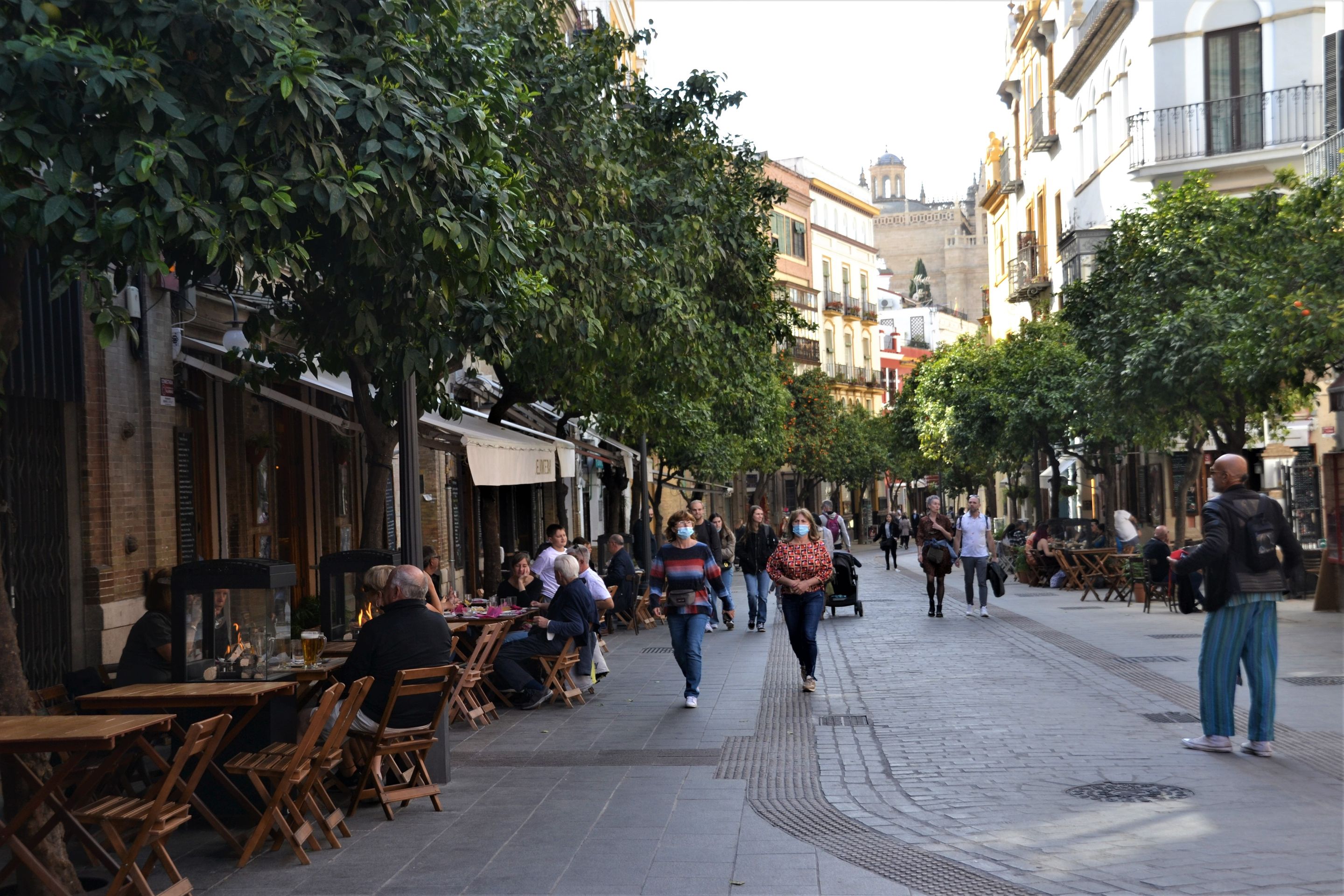
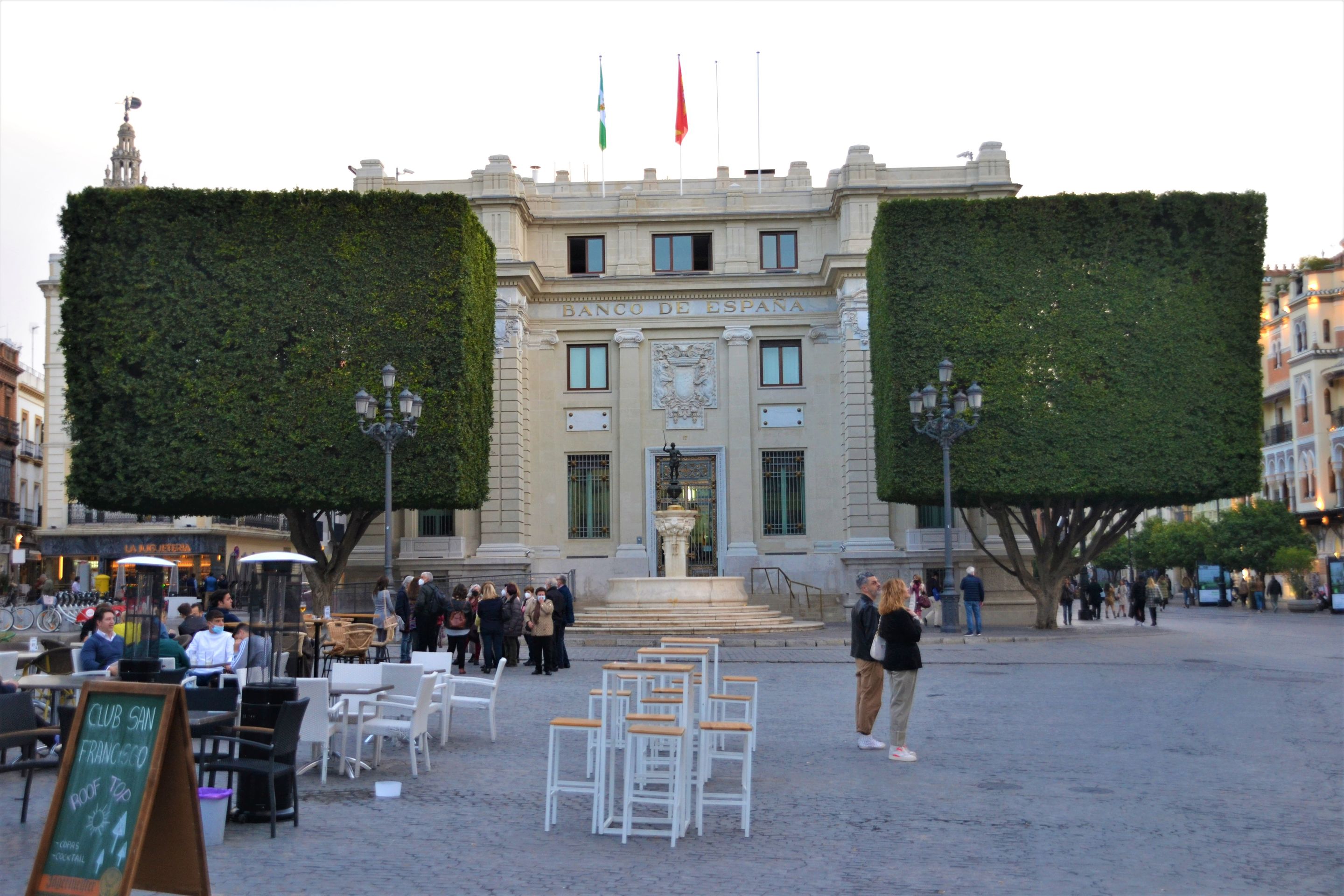

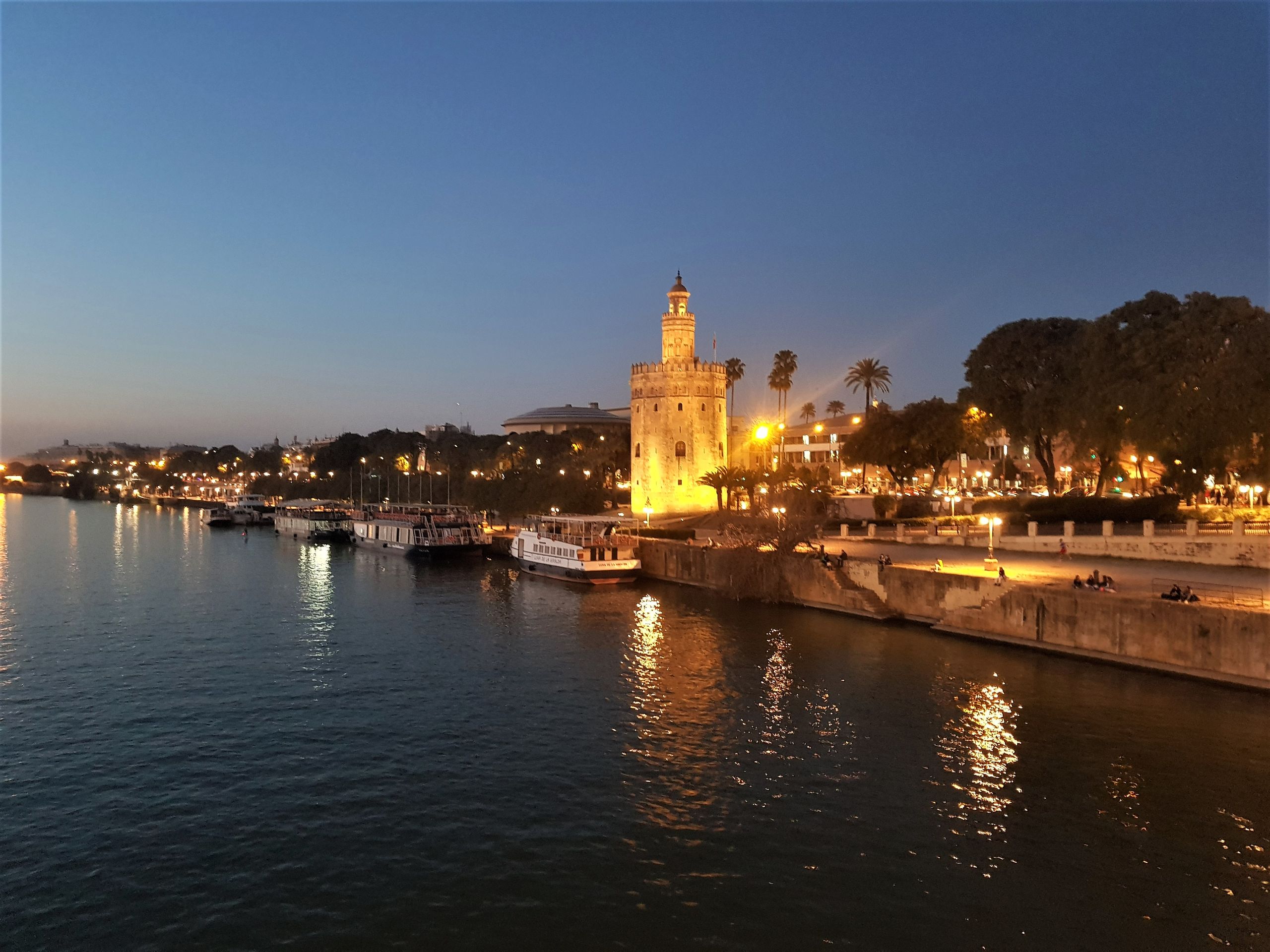

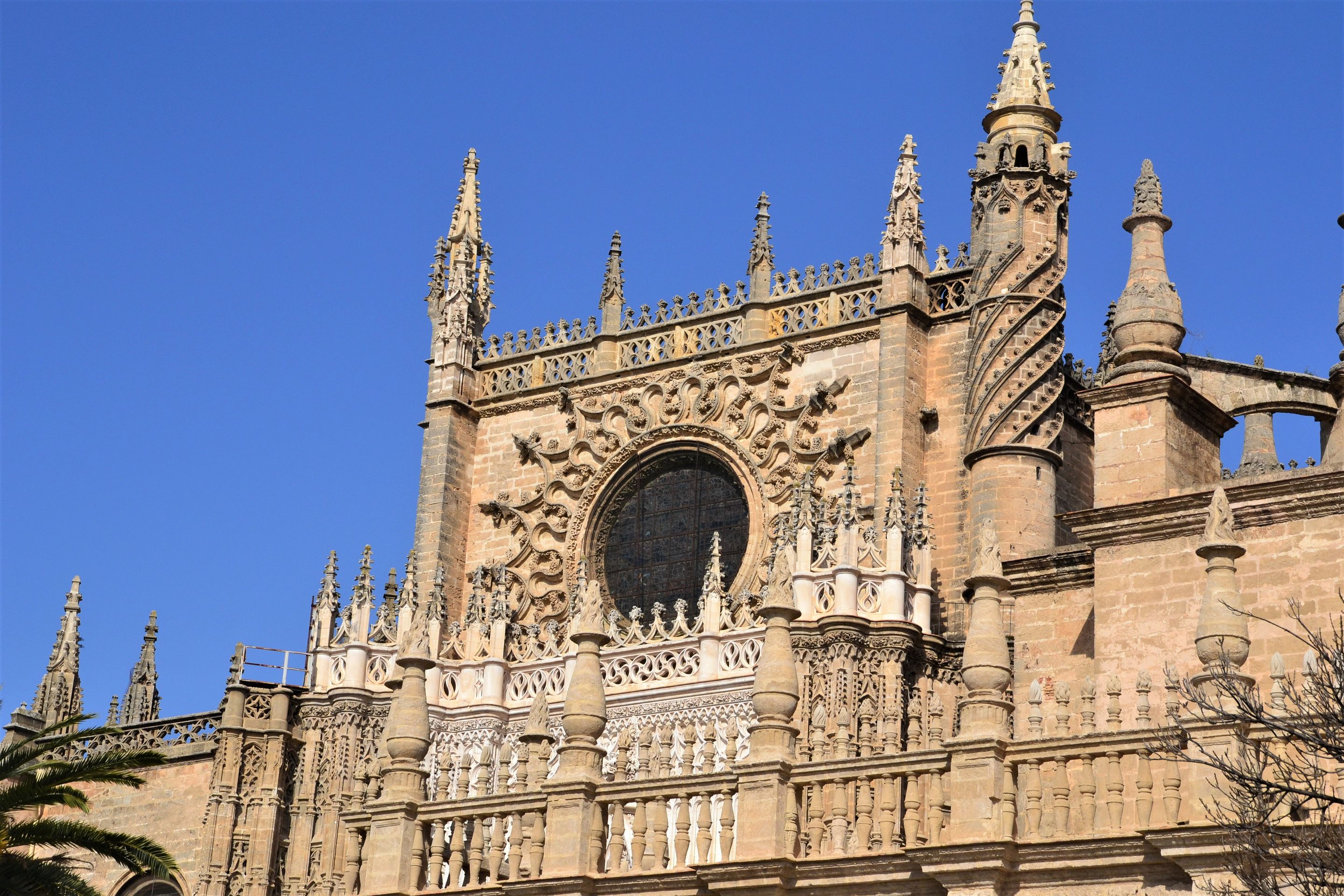
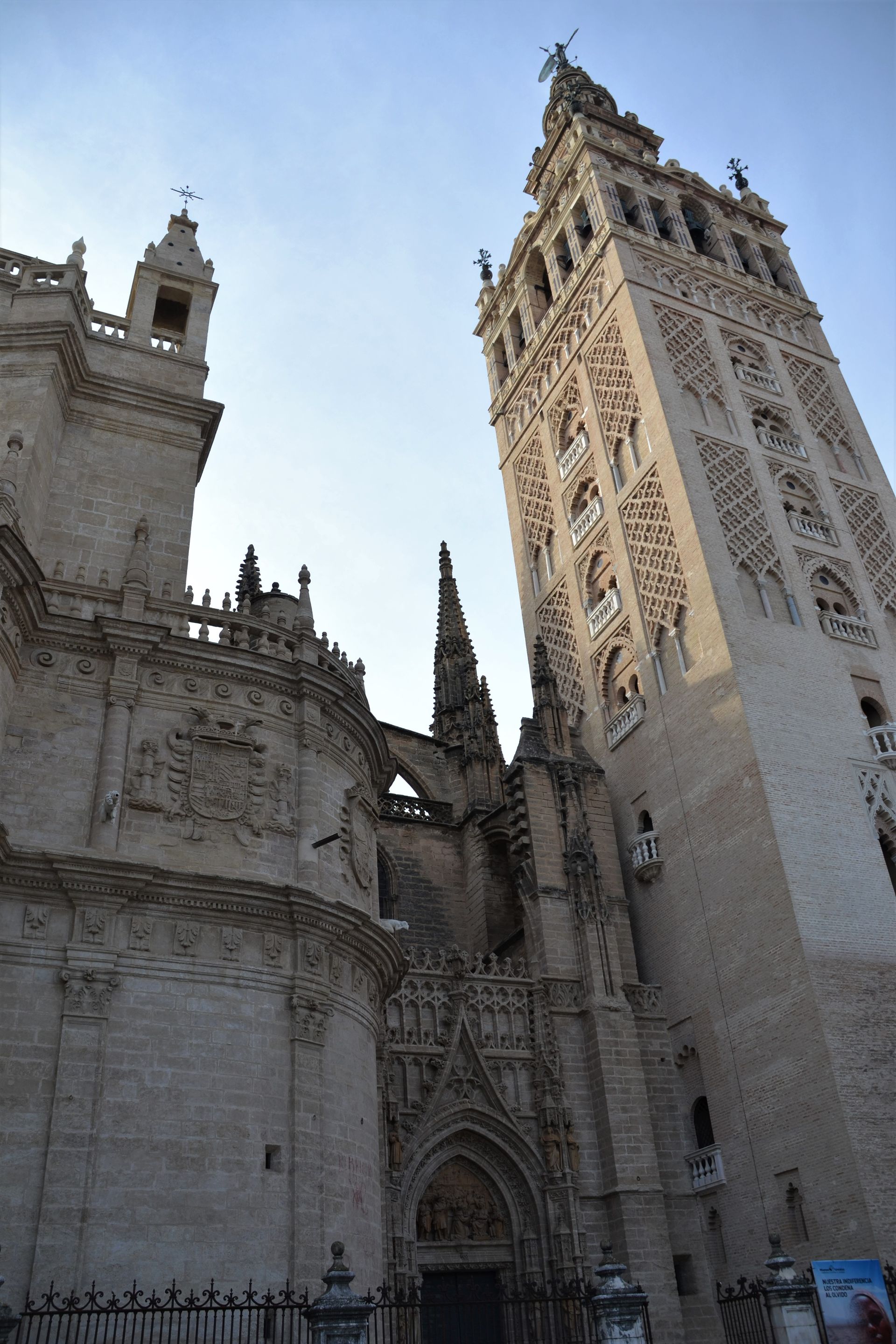

The Alcázar, an old castle right next to the cathedral, is very impressive and almost as beautiful as the Alhambra in Granada, with beautiful facades, arches, columns, plasterwork, tiles, domes, courtyards, and a huge garden. Unlike the Alhambra, it was built by the Christians in the style of the Arabic Muslims, so a mixture of different architectural styles can be seen here.

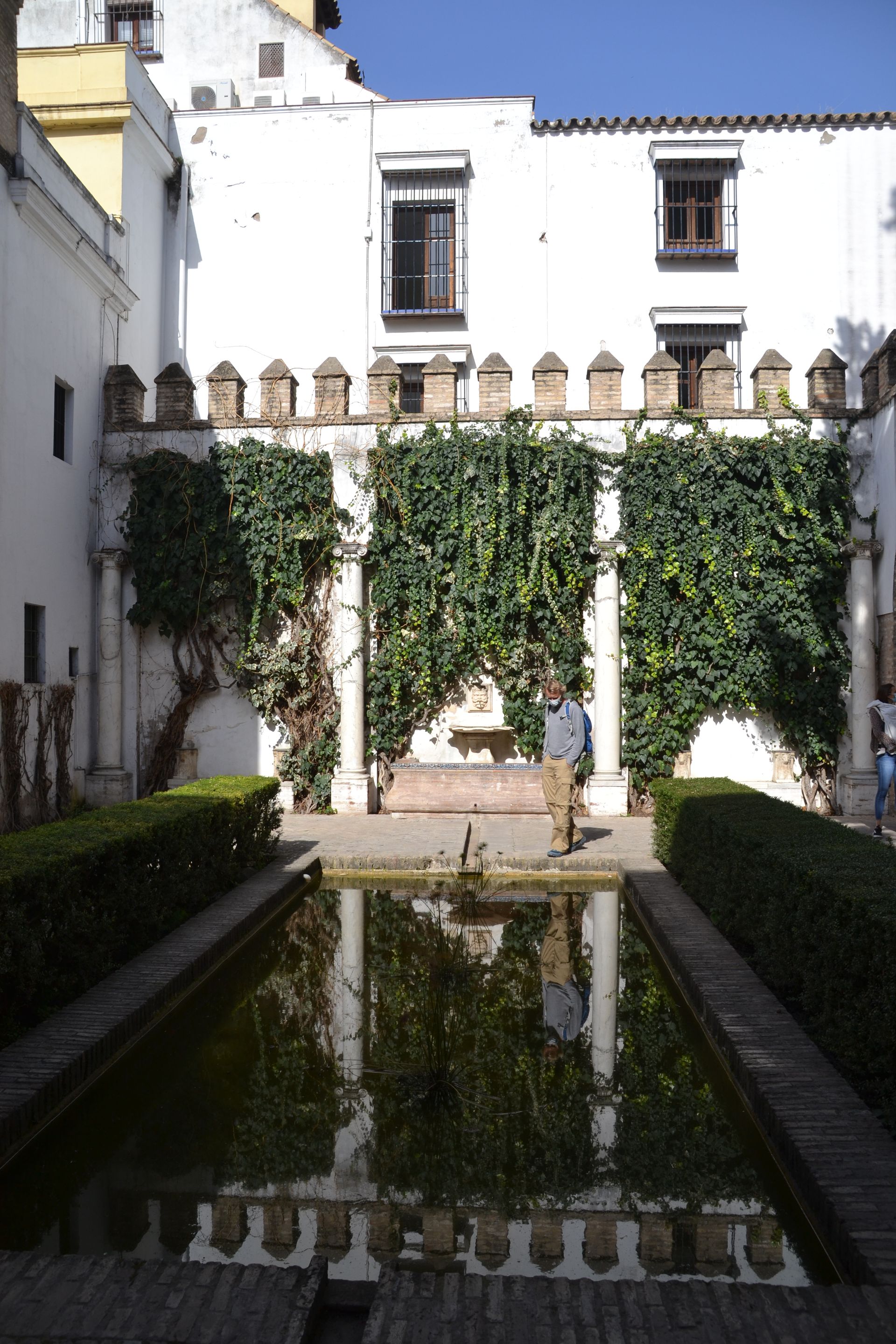
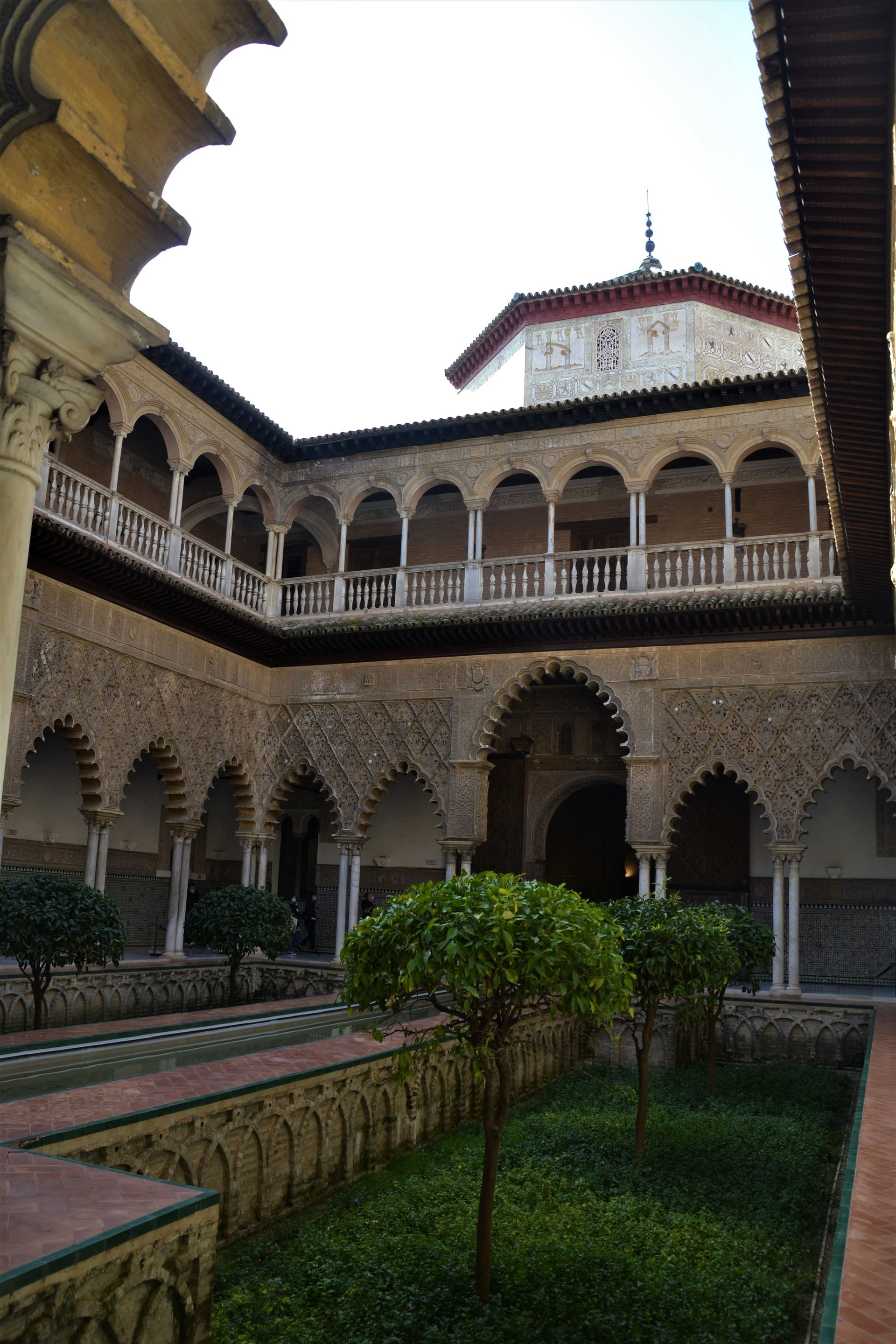

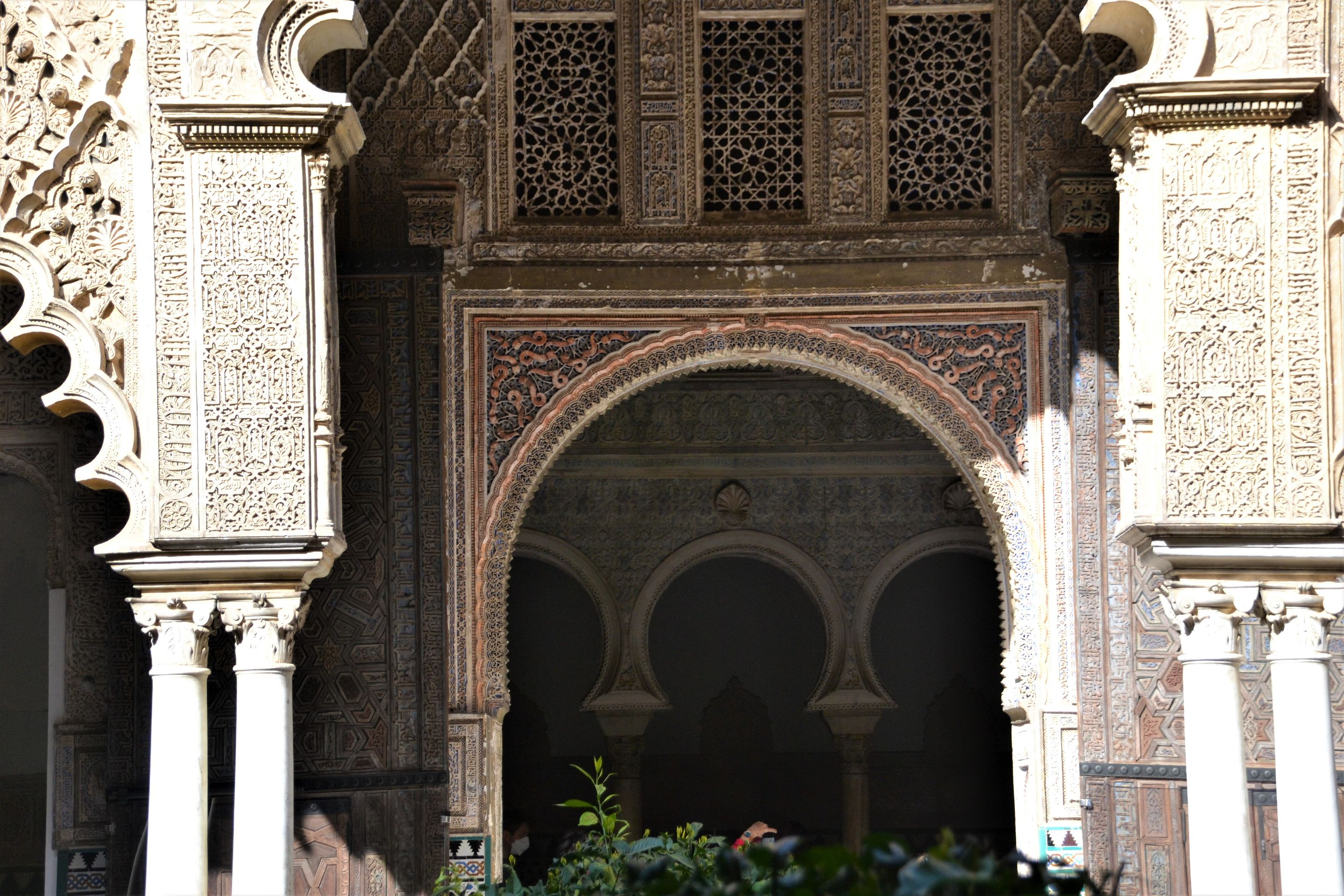
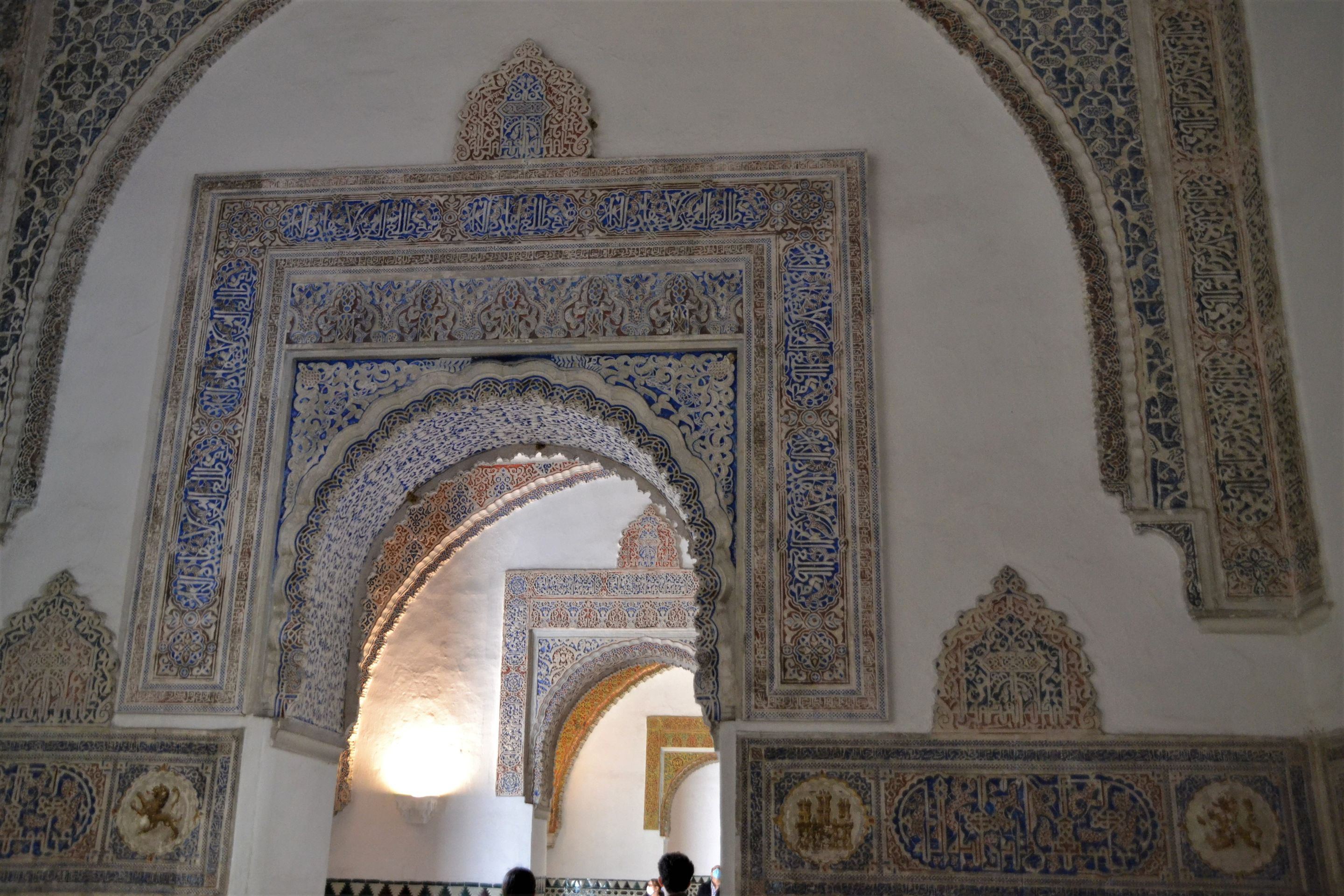
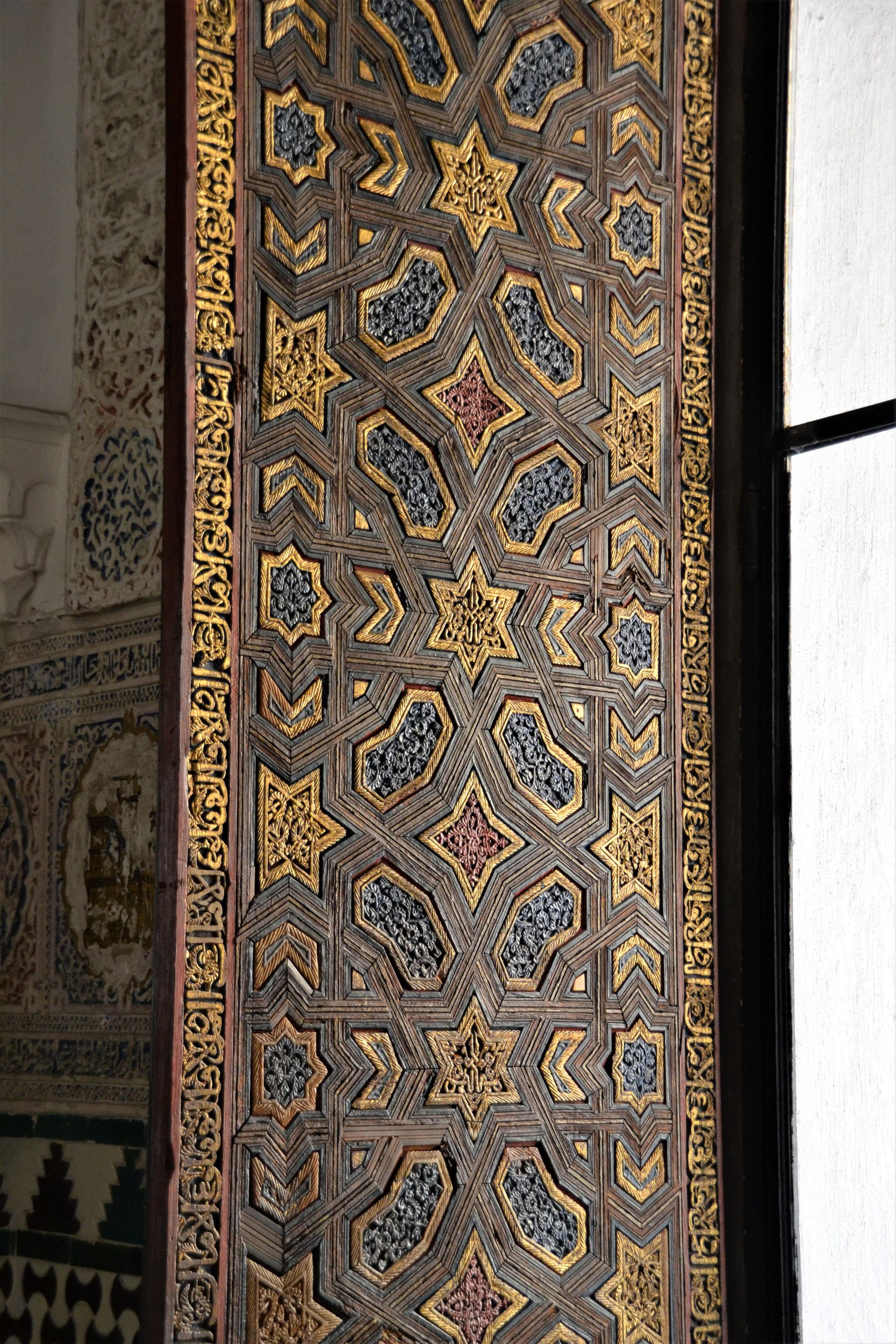

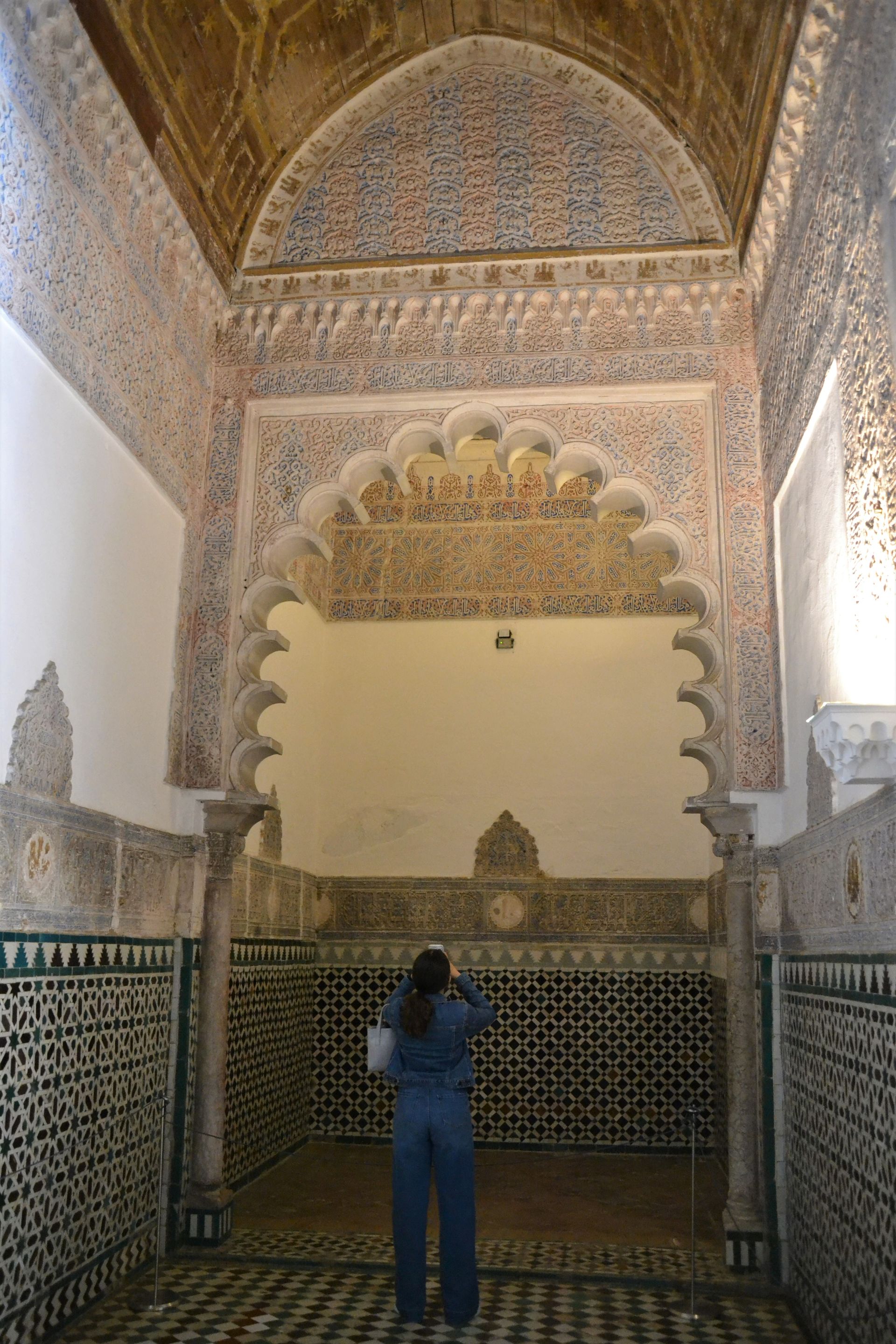


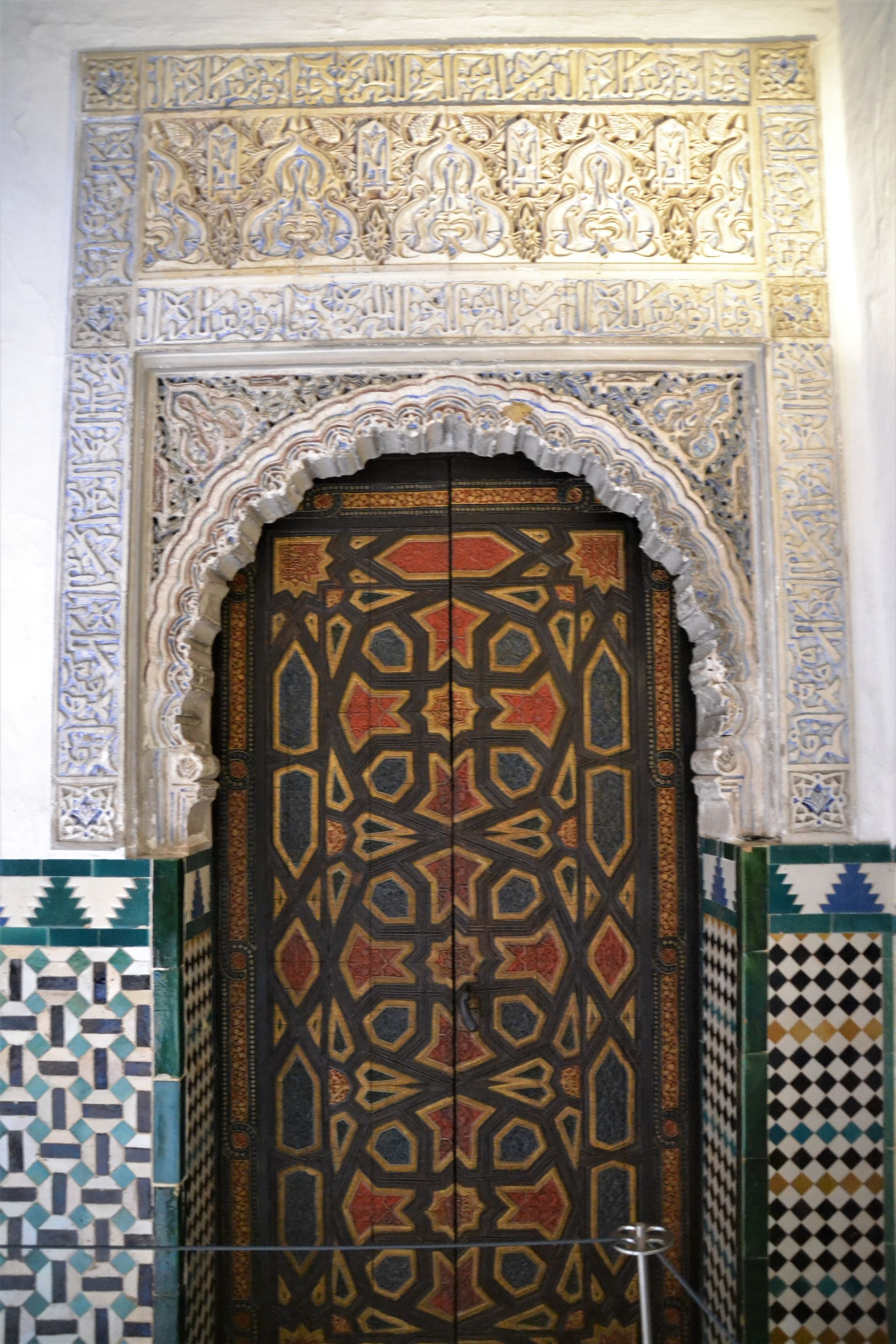
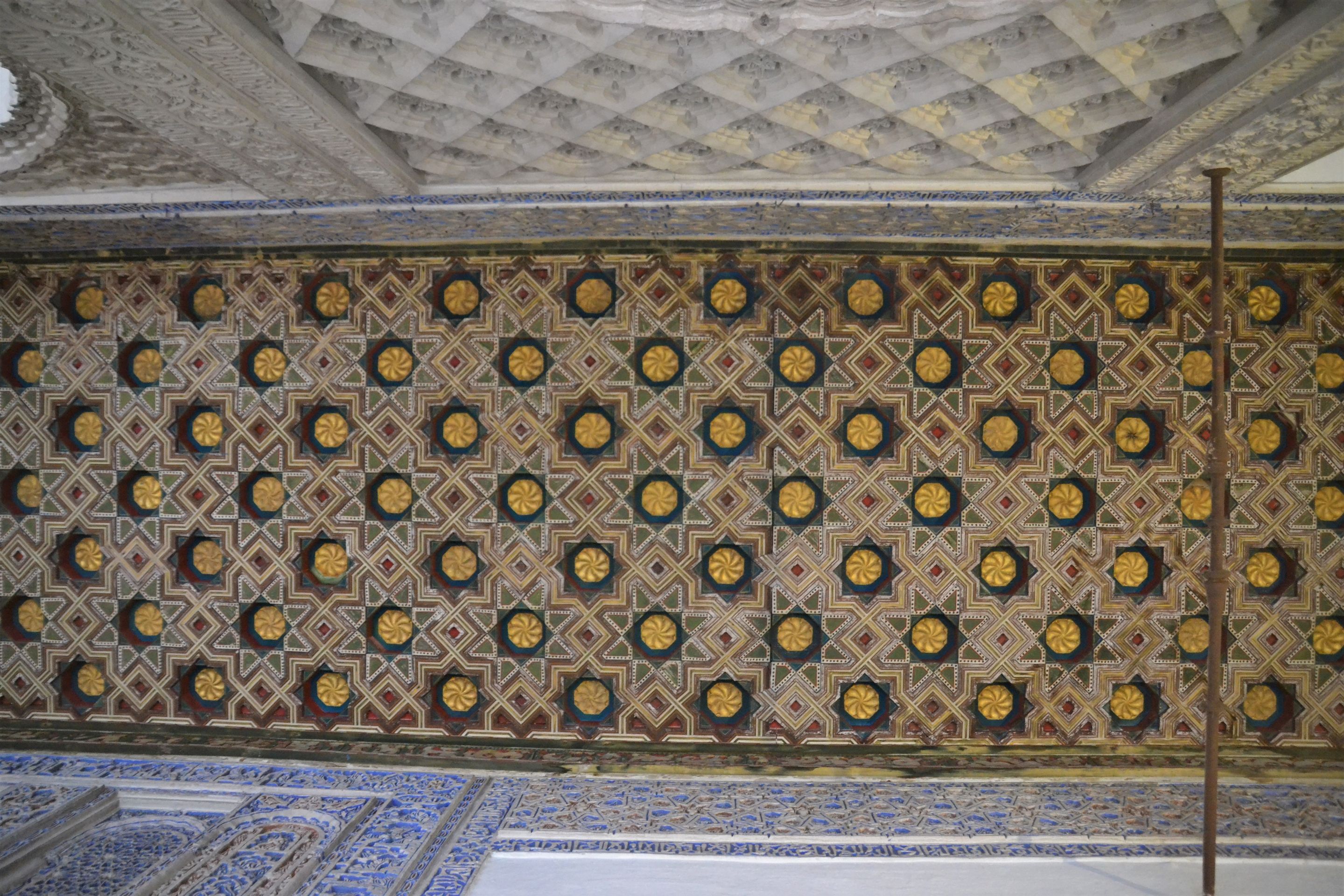

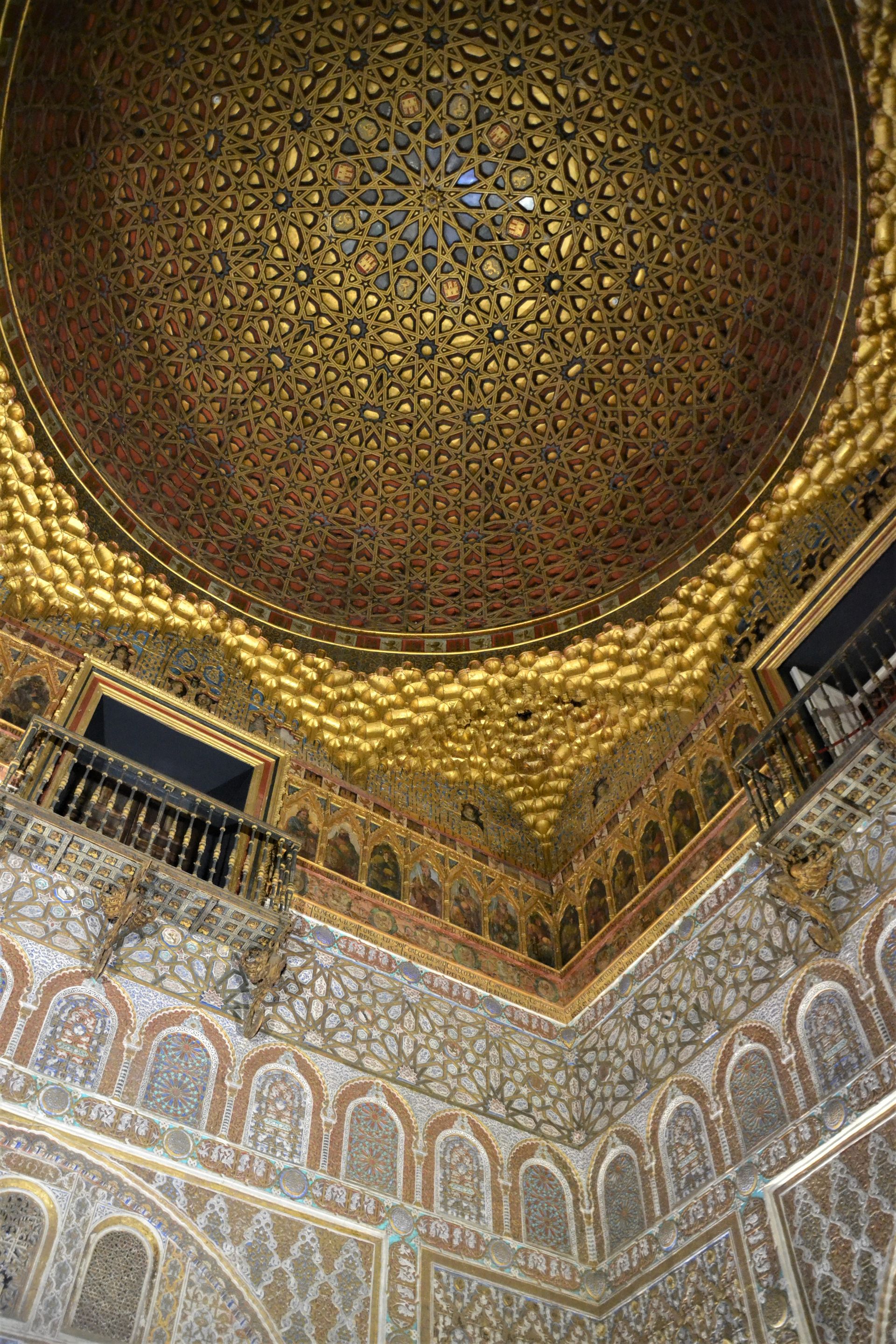
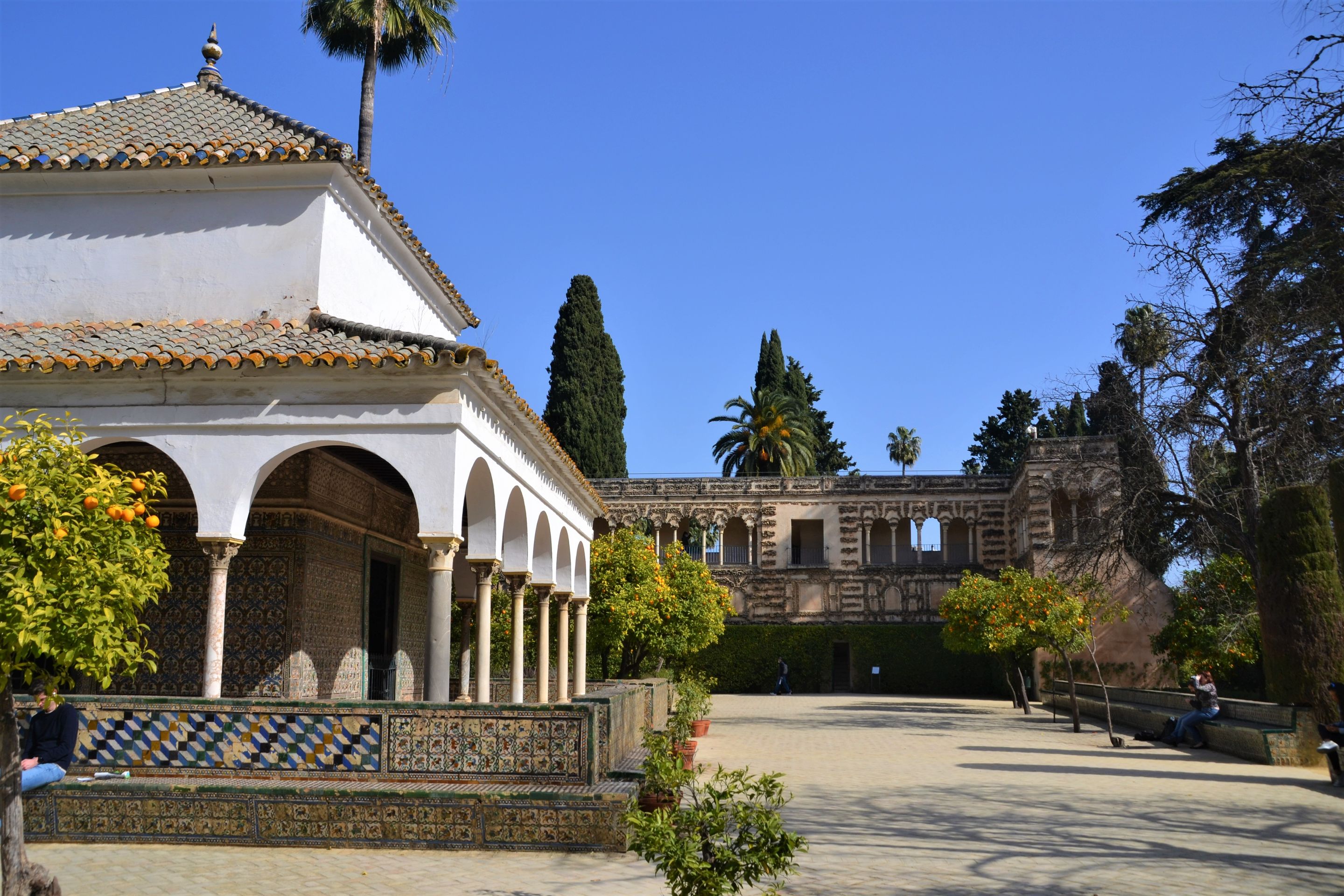
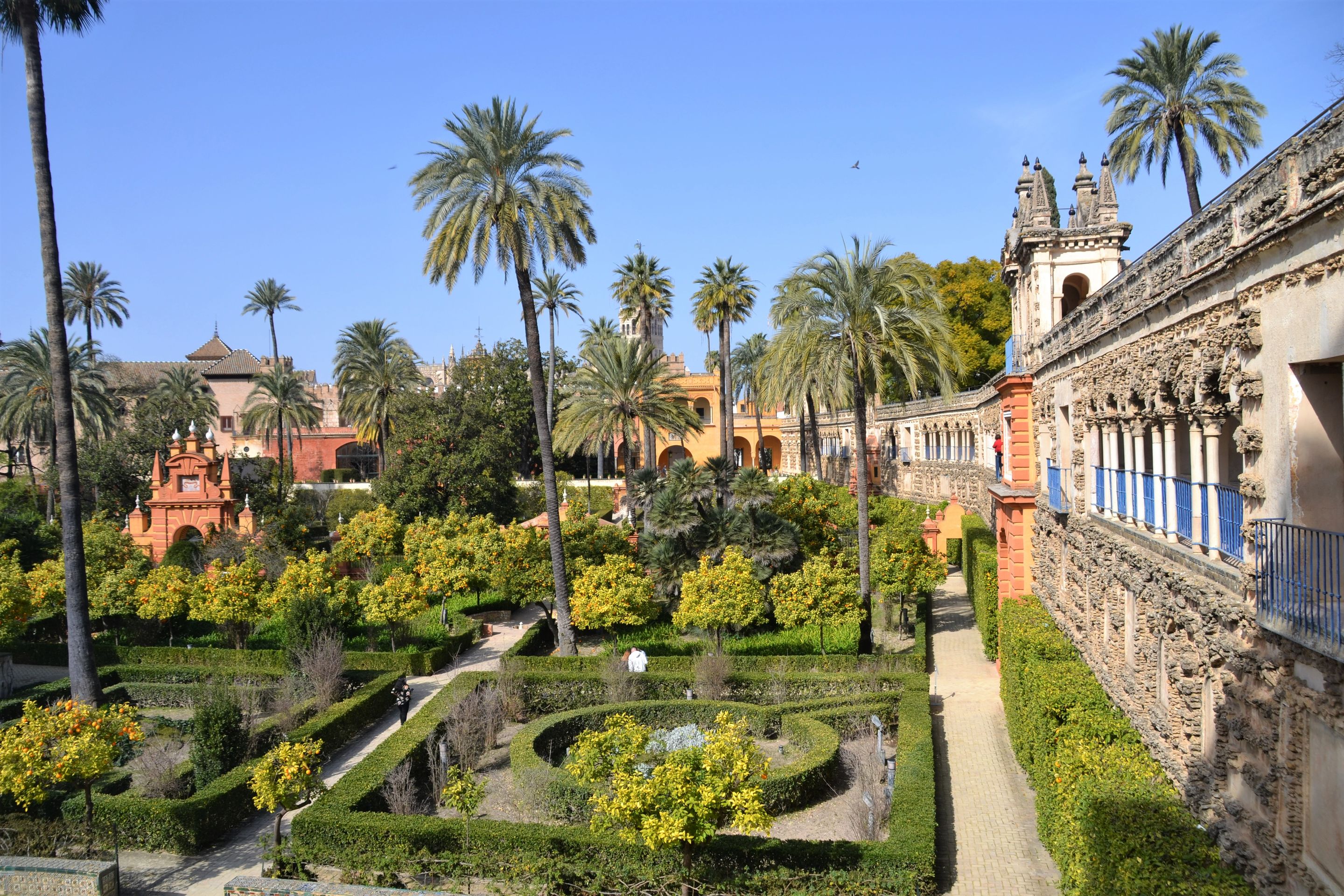
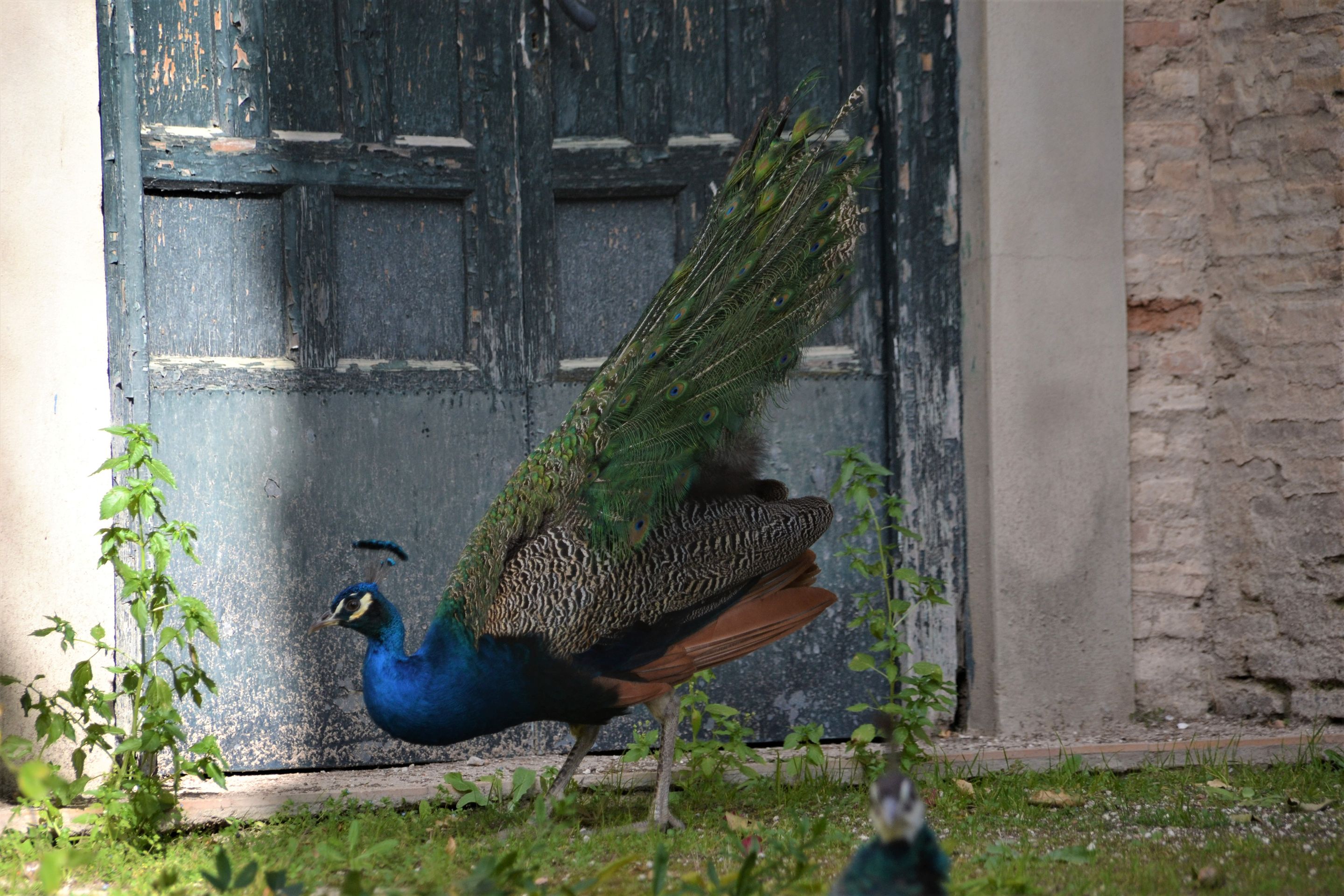
The Plaza de España also impressed us. The location for a distant planet in Star Wars actually looks like a distant world. The huge square, with a diameter of 200 meters, is surrounded by a semicircular building and a semicircular moat with four curved bridges. The famous art of ceramic tiles known in Sevilla can be seen particularly well here. The park in front of the Plaza de España, the Parque María Luisa, is beautiful and probably the most beautifully designed city park I have ever seen.

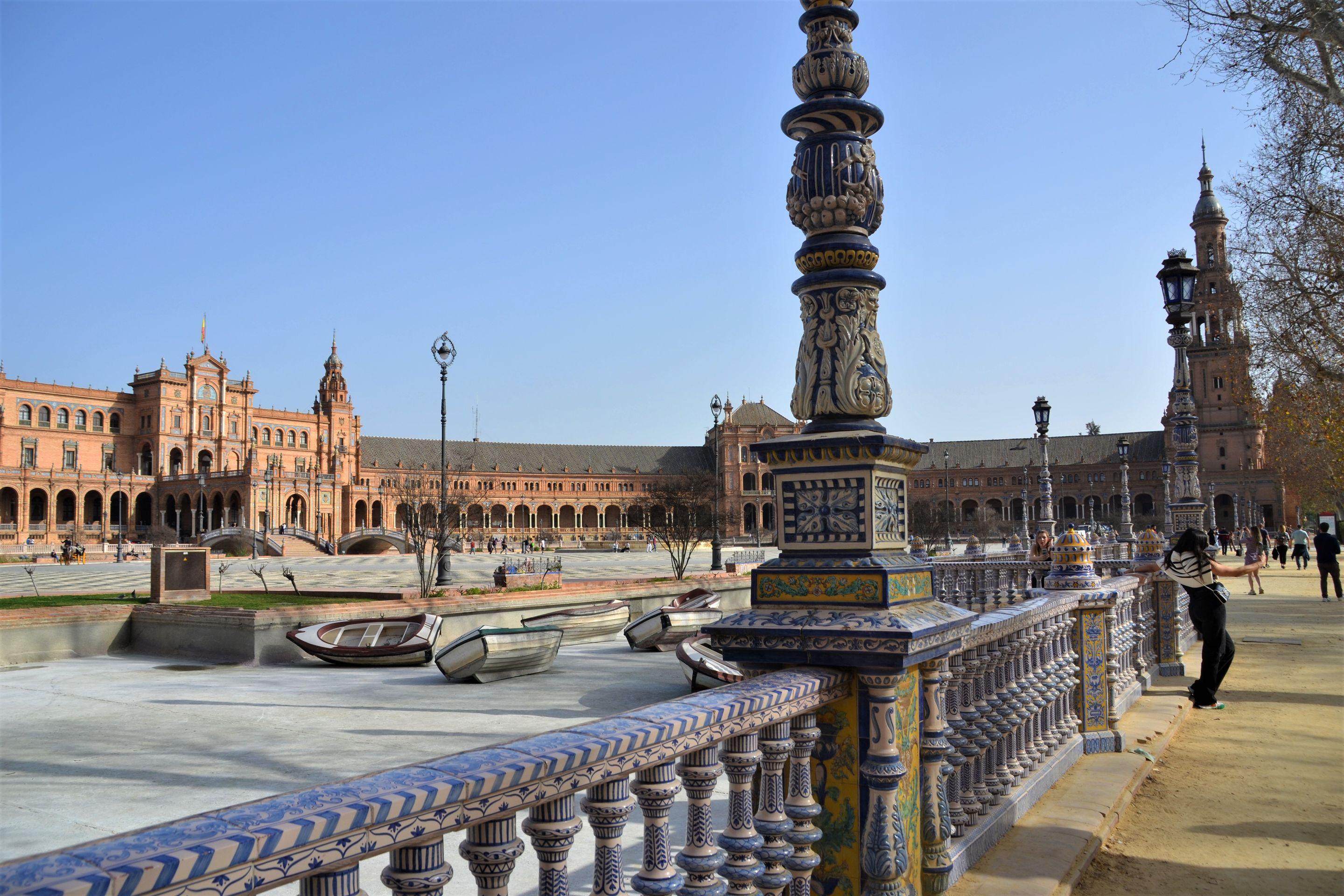
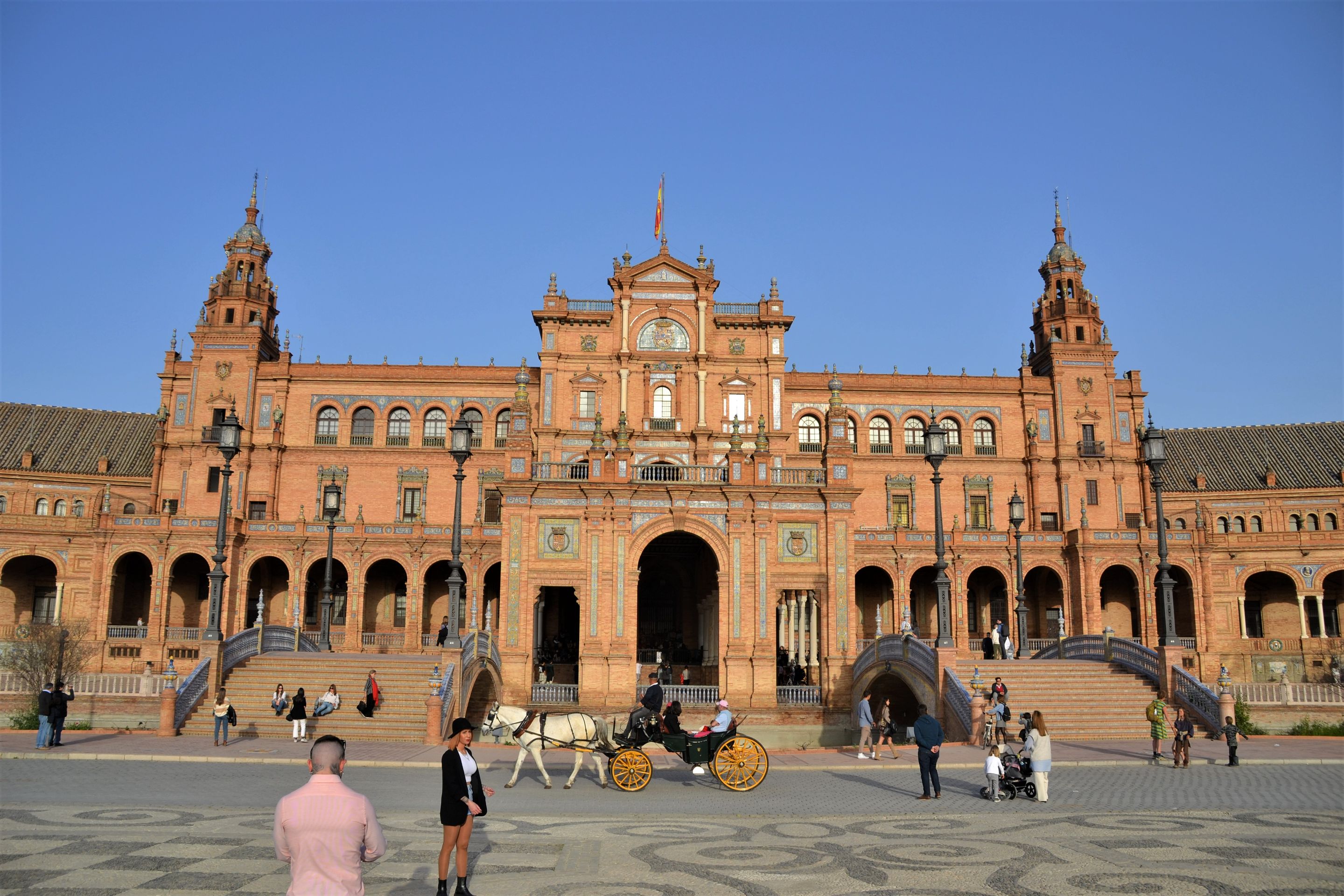


We also saw a Flamenco group at the Plaza de España. Flamenco is very popular here, as it is in Granada. Therefore, we visited the very well-made, interactive Flamenco Museum Museo del Baile Flamenco and attended an impressive Flamenco show in the courtyard of the museum. In the exhibition, we learned a lot about posture, expressed emotions, and the different styles of Flamenco, which we recognized again in the evening at the Flamenco show. The two dancers and the dancer were full of passion and dedication, but the two singers and the guitarist also played beautifully. The number of steps that the dancers take to tap with their clacking shoes is incredible. The show was choreographed by the famous Flamenco dancer Cristina Hoyos. Nevertheless, the show also looked improvised at times when the dancers immersed themselves in the dance and let their movements and emotions flow freely. A very impressive and sweat-inducing spectacle for the dancers.
Unfortunately, photography was not allowed during the performance, but there are some impressive videos and photos on the website: http://www.sevillaflamenco.com/museo-del-baile-flamenco.html
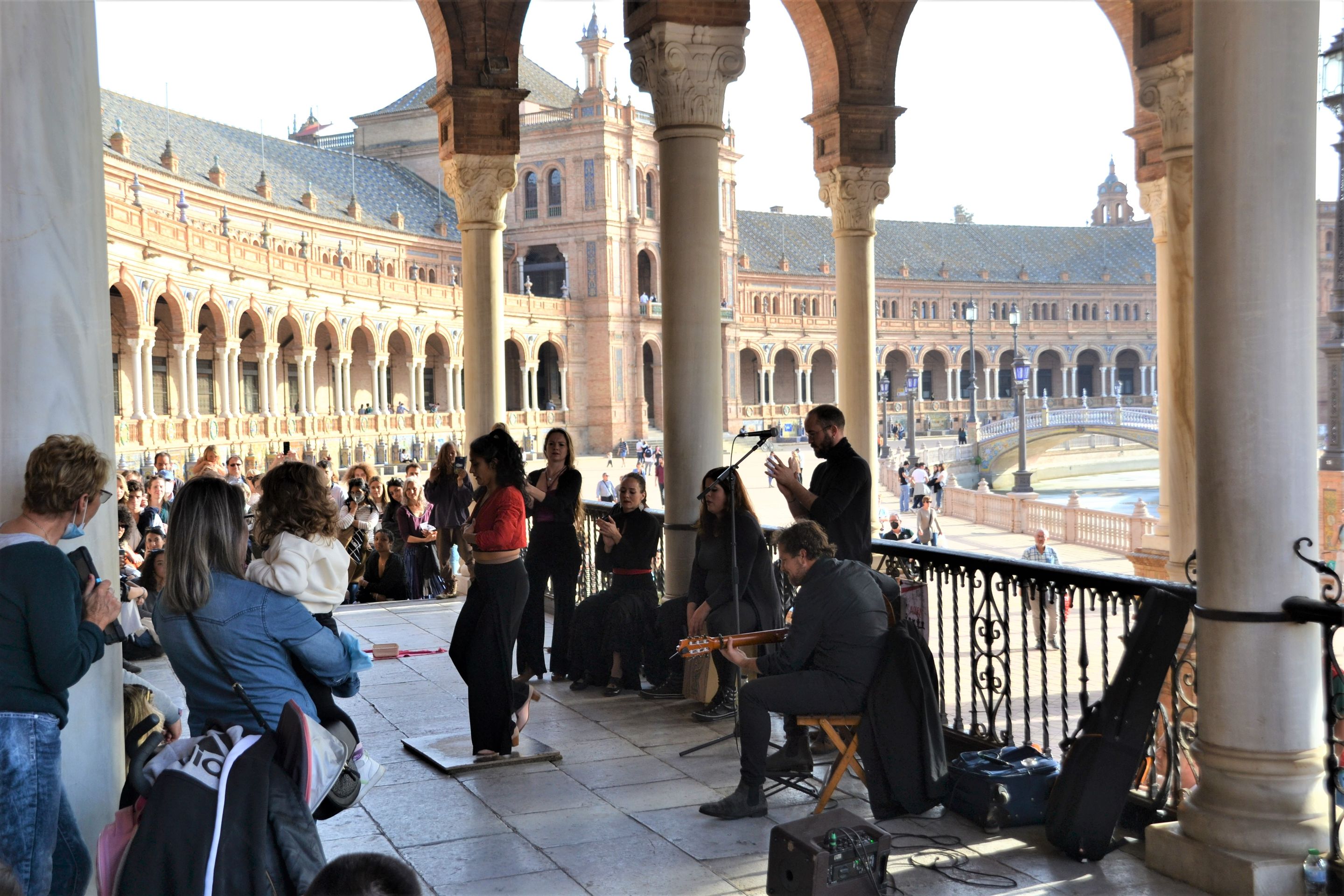
Sevilla is known not only for Flamenco but also for Tapas. So we went for Tapas several times. The small portions are extremely cheap and still very filling, so you can also drink good wine or local orange wine for little money. The orange wine is quite sweet, very delicious and is served in rather small glasses, similar to a liqueur. The Tapas are very different here compared to Barcelona, for example. On the one hand, there are completely different Tapas to choose from, for example, Montaditos, abundantly filled sandwiches, or a chickpea and spinach stew known for this region, or of course Iberian ham, as the free-roaming pigs, each of which has a hectare of oak forest for running around, are kept nearby. But even Tapas with the same name, like Patatas con Aioli, are prepared and served very differently here.
We spent several evenings in the many Tapas bars in the city center and the neighborhood of Triana, which is more popular with locals. Since the Spaniards also start eating late in the winter, most restaurants do not open until 8:00 pm. So we had to postpone our dinner a bit, but it was definitely worth it.
Unfortunately, we didn't take too many Instagram-like pictures and enjoyed our food a lot, so we can't present any photos of it here. (But the two Americans we met in Ronda, Hannah and Trey, made a video about their Tapas tour in Sevilla, and we also ate/drank some of what they had: https://www.youtube.com/watch?v=83OQLrM8aes )
P.S.: The oranges on the trees in the streets here, like everywhere in Spain, are bitter and inedible. (Maybe to make the oranges look good and not be harvested by the population.) Sevilla has even more orange trees than any other city we have been to. Now that the oranges are ripe, they start to fall down, so you can see squashed oranges everywhere on the streets. To prevent the city from being paved with orange puree and to make the trees bloom again and envelop the city in a sweet scent, the city harvests the oranges and sells them to Great Britain. Conveniently, the British use these bitter, inedible oranges to make their traditional orange marmalade.

Day 119 - Total tour 7,595 km
---- Subscribe ----
If you would like to subscribe to our blog, you can either sign up at Vakantio and click on subscribe or send us a message and we will put you in our own distribution list. We are also happy to receive feedback!
Mail: querfeld2@gmail.com
ຈອງຈົດຫມາຍຂ່າວ
ຄໍາຕອບ
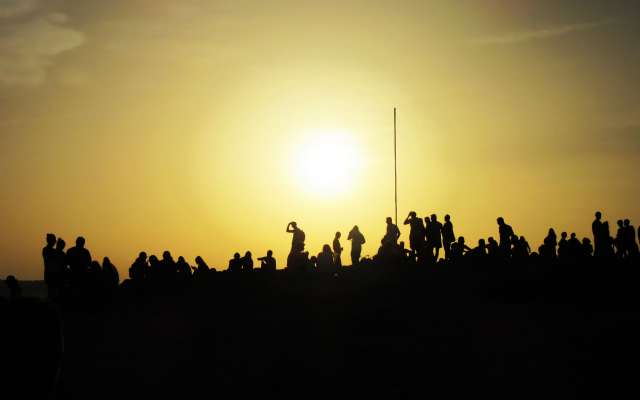
ລາຍງານການເດີນທາງ ສະເປນ
